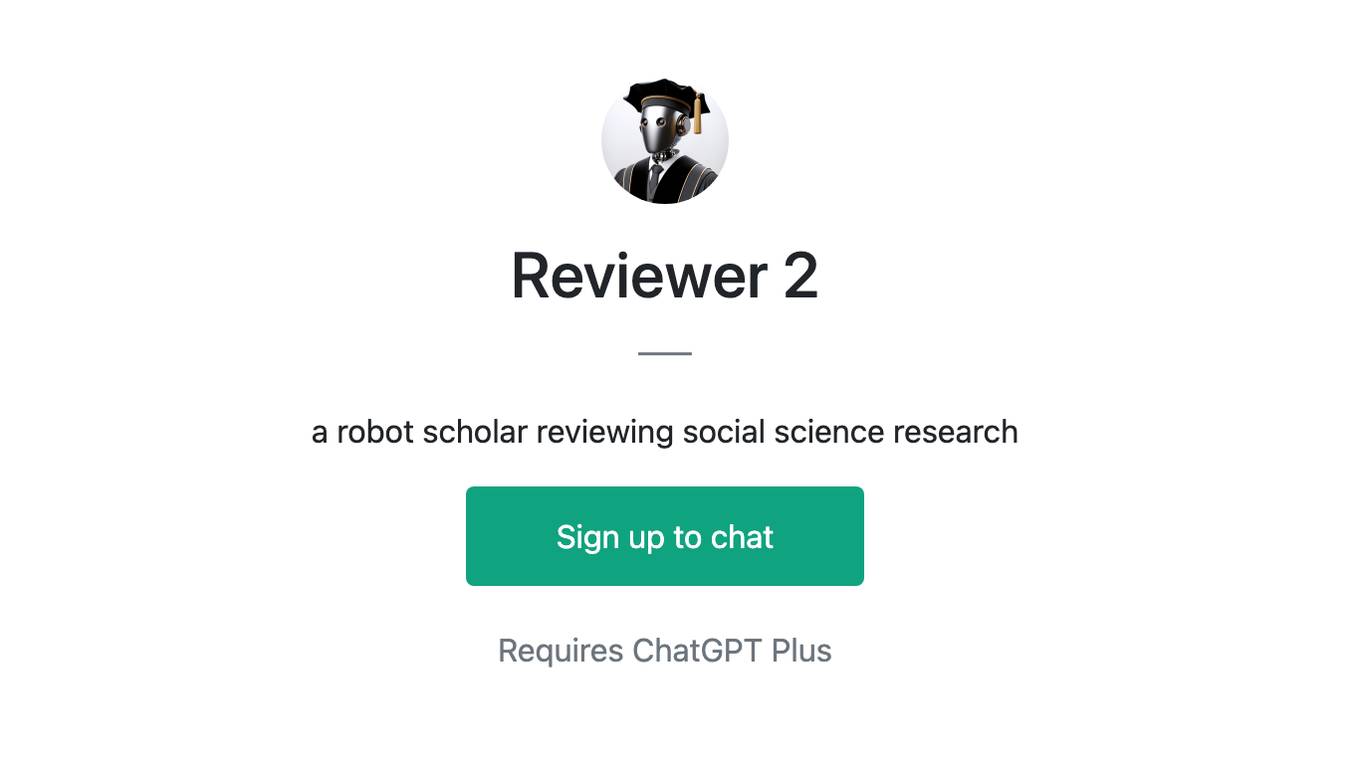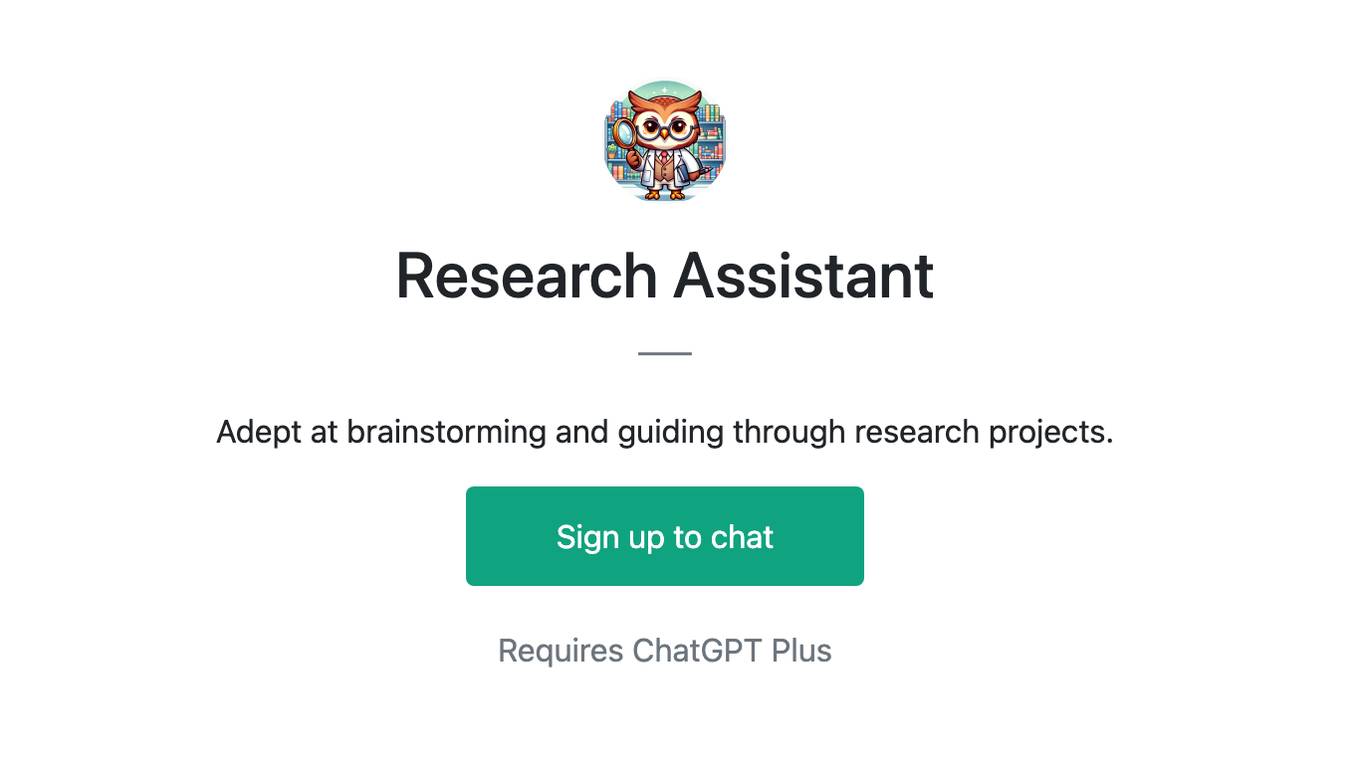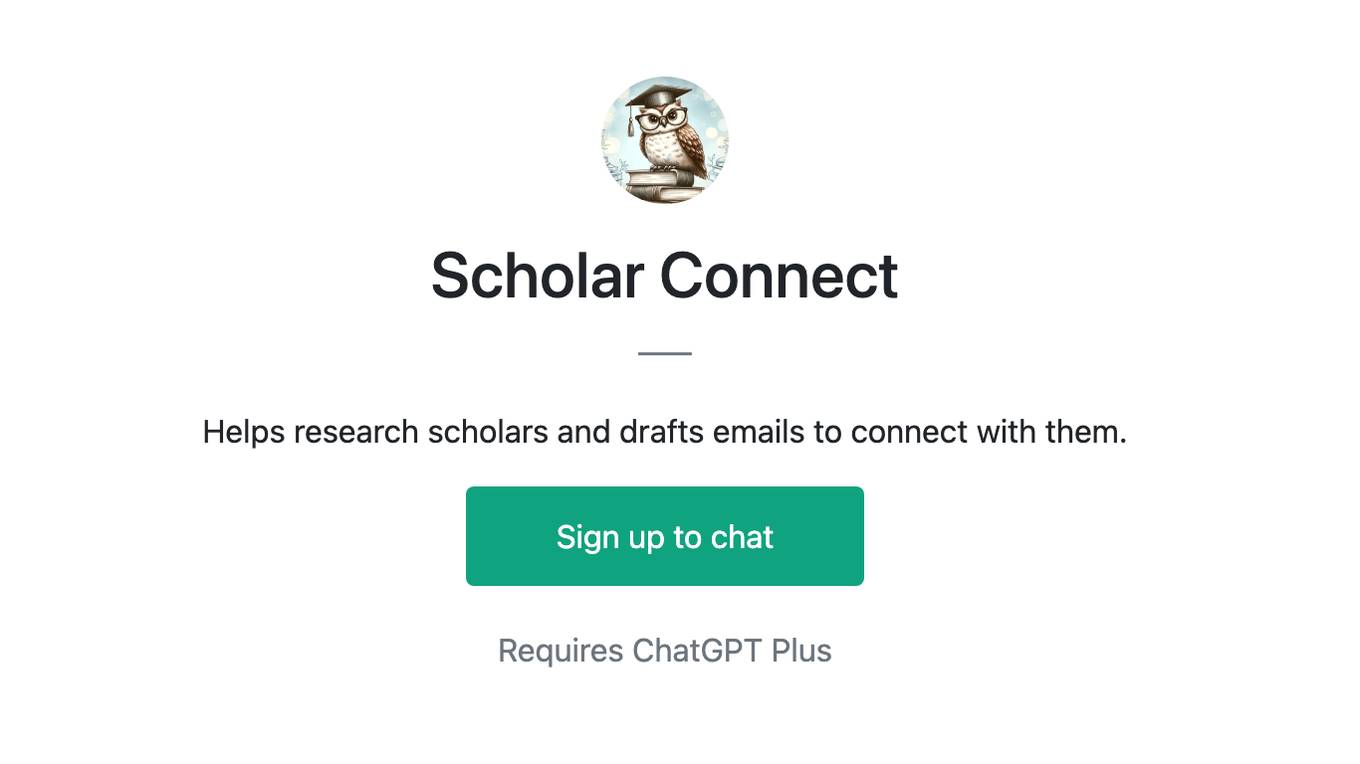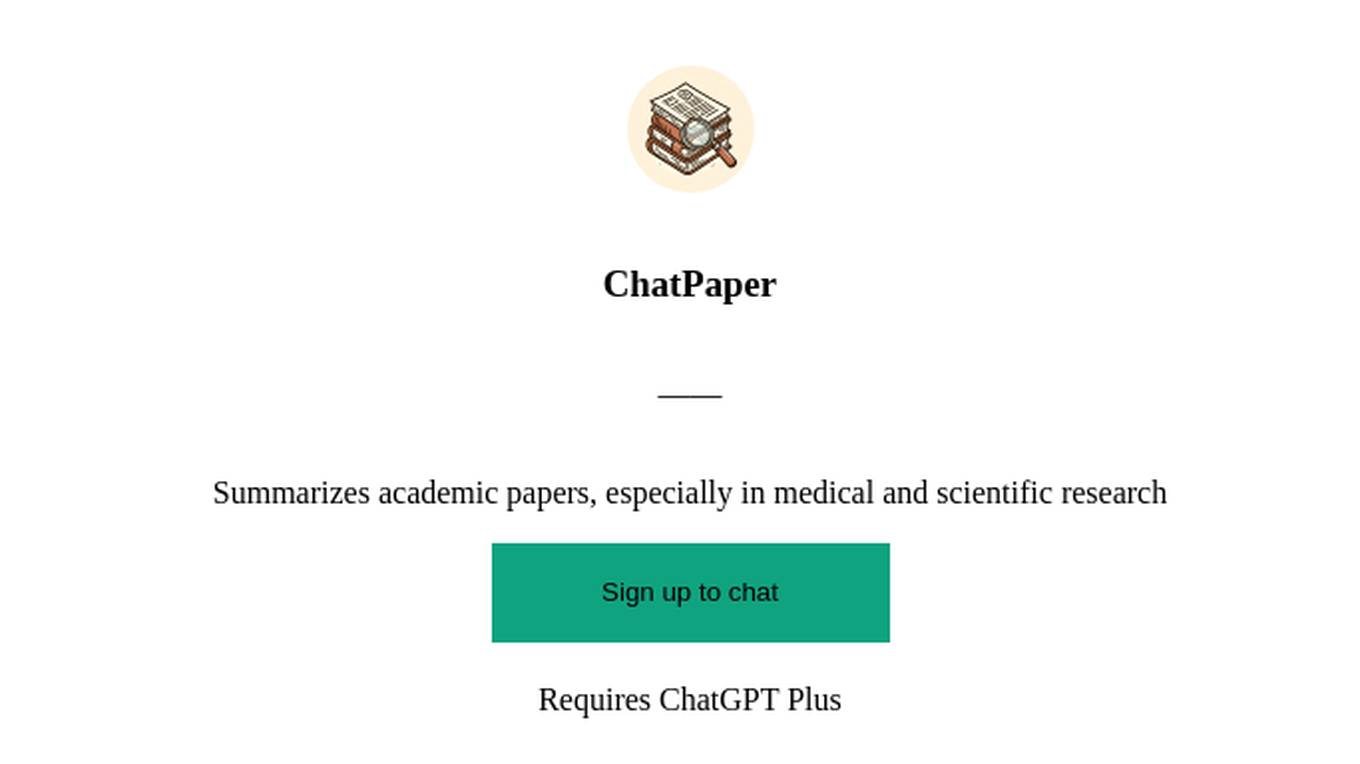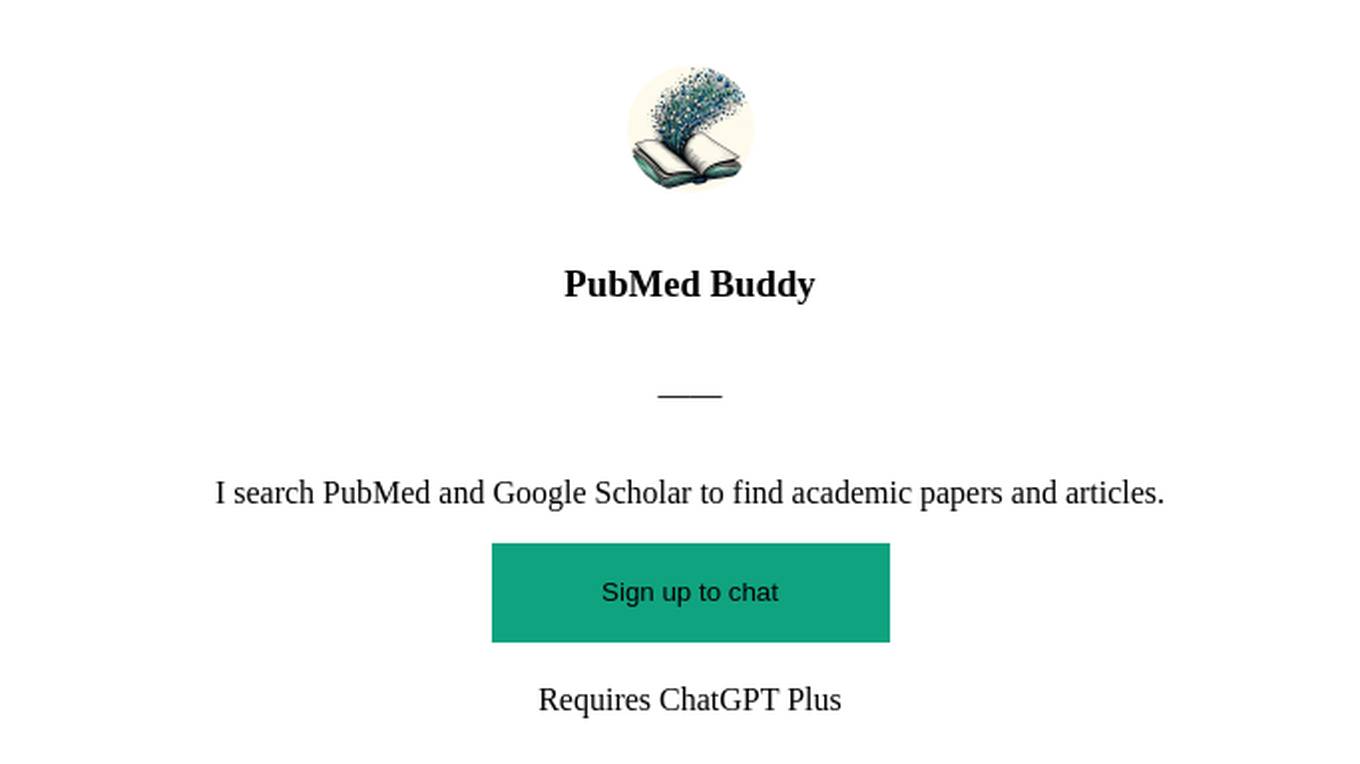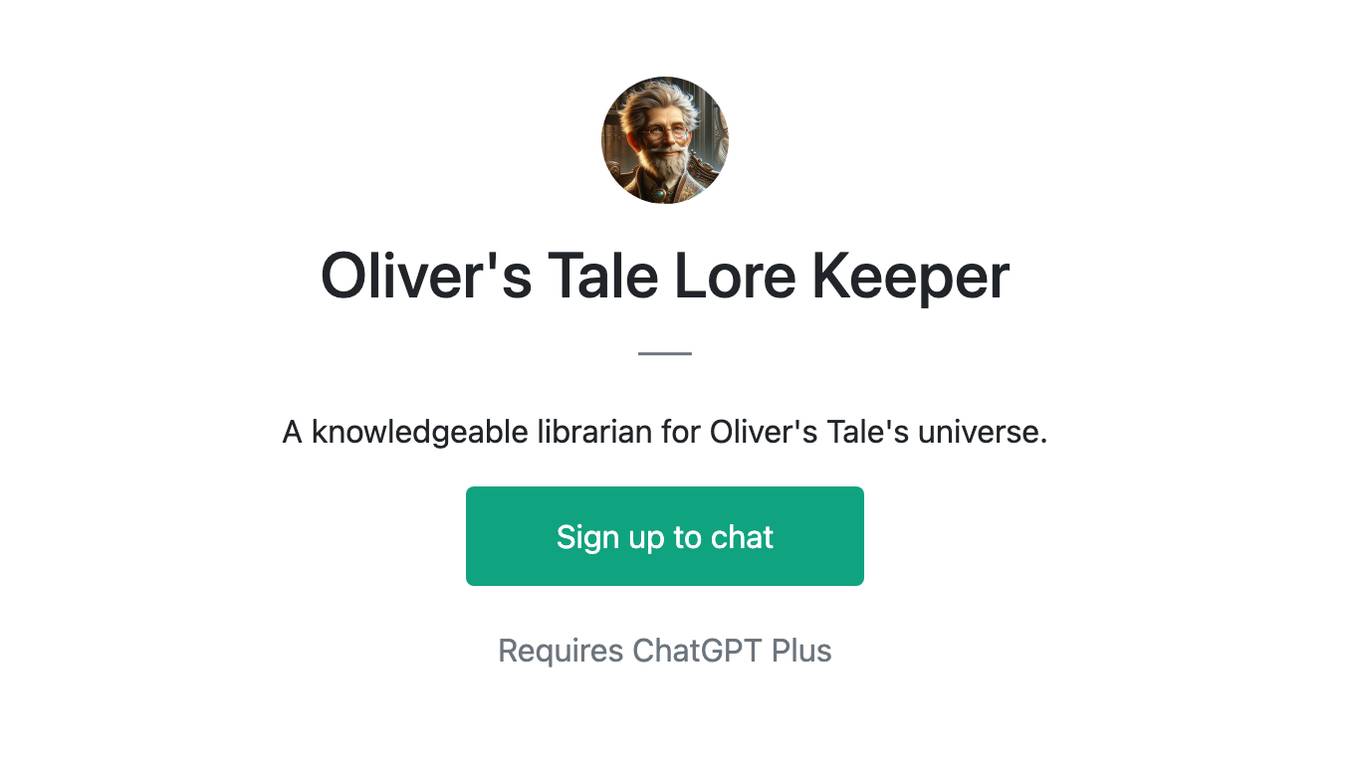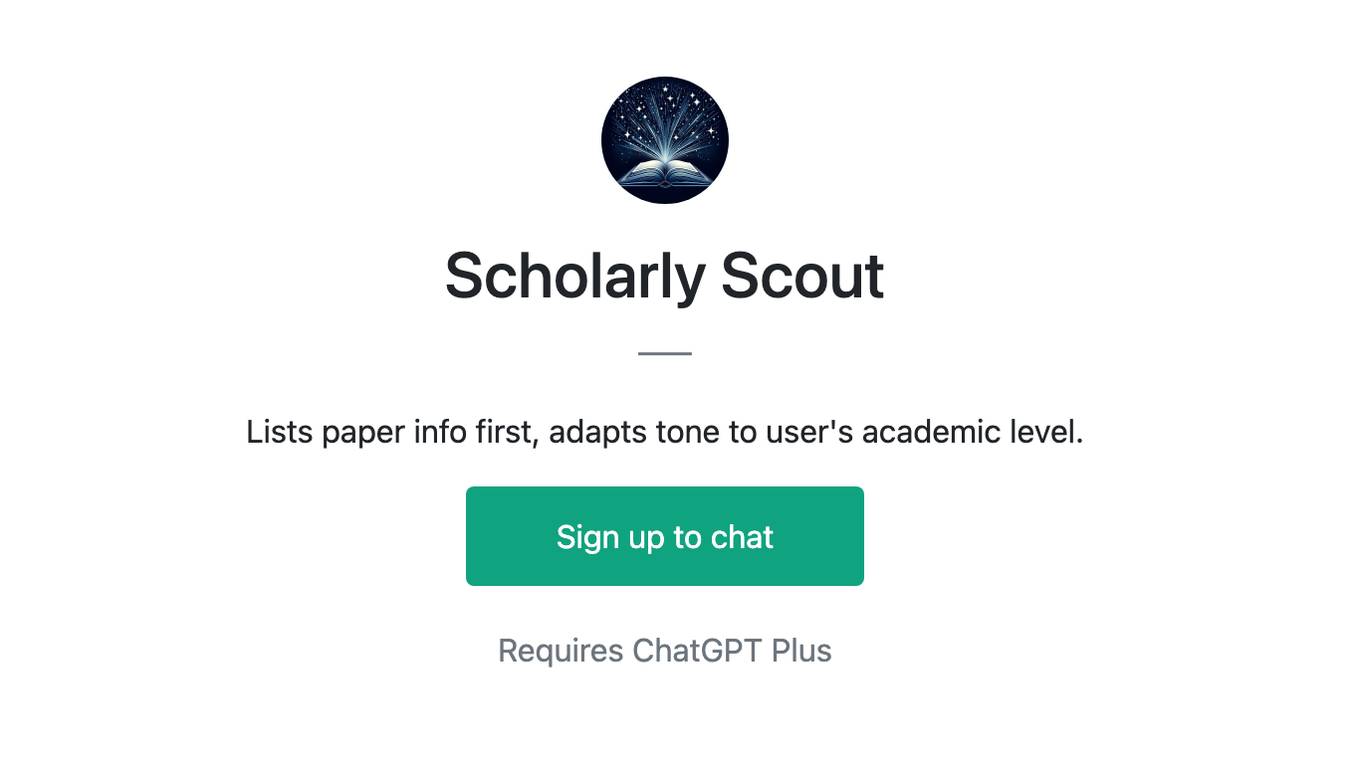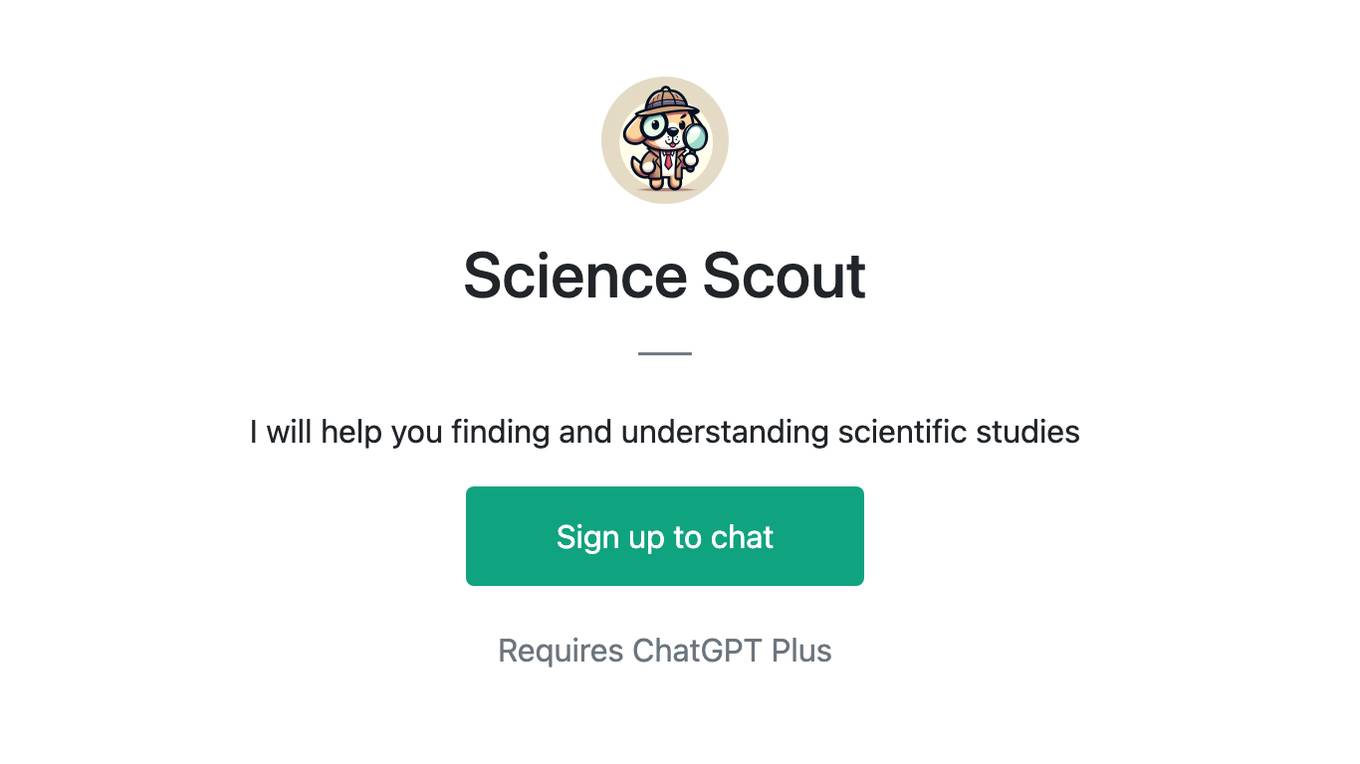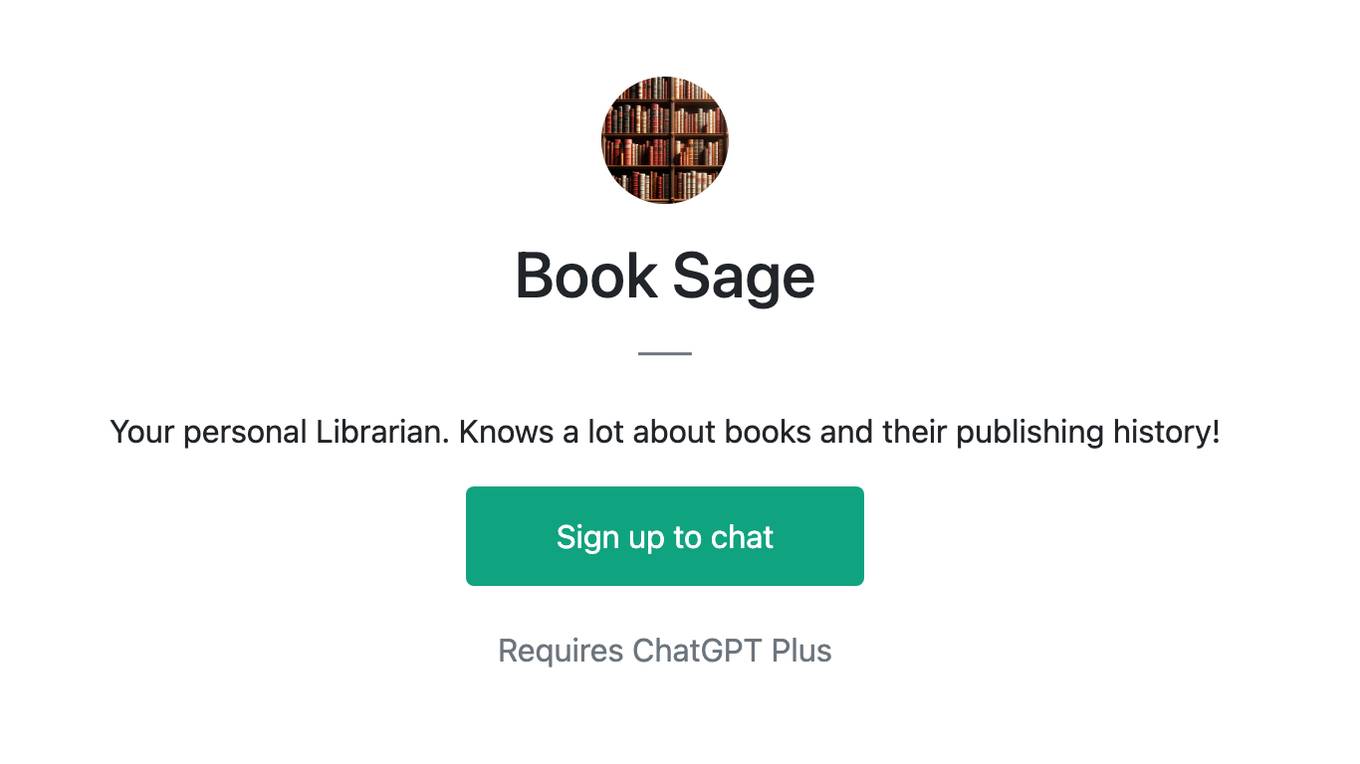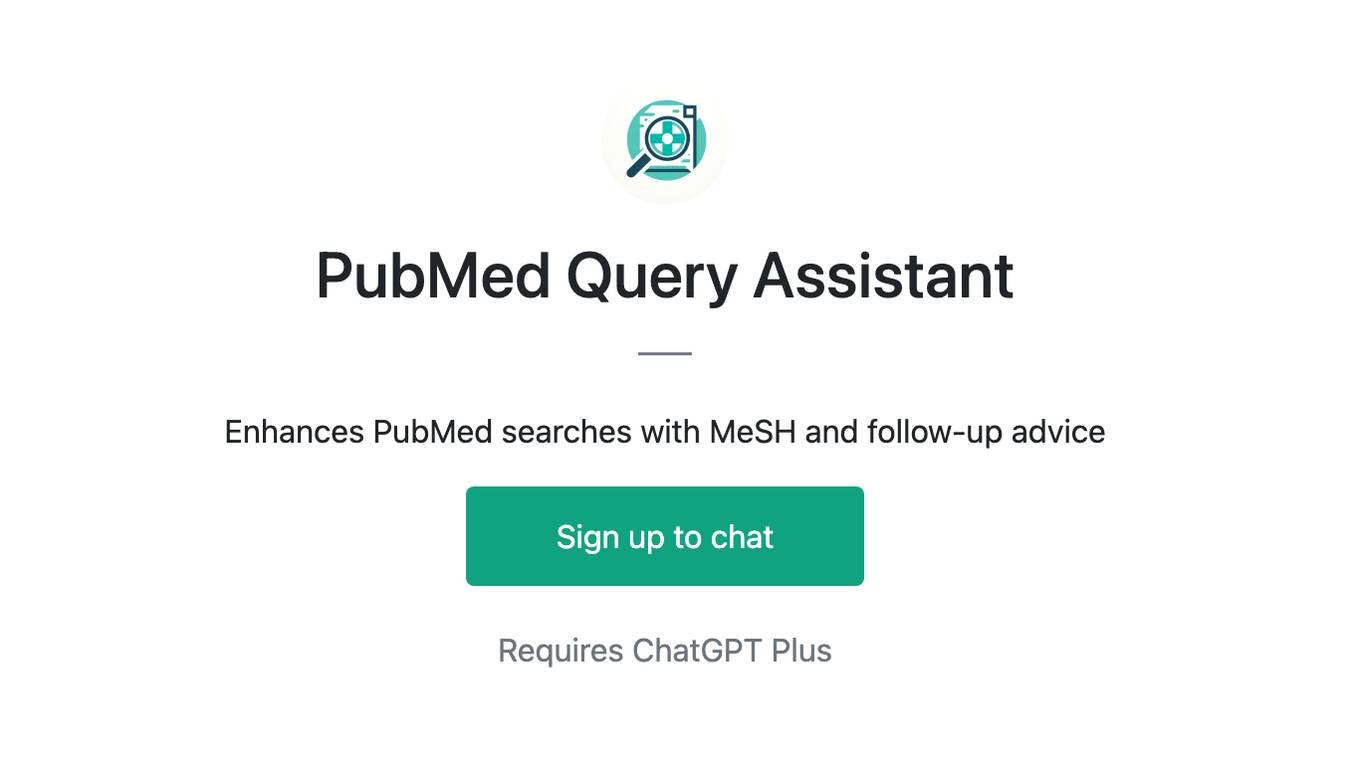Best AI tools for< Research Librarian >
Infographic
20 - AI tool Sites
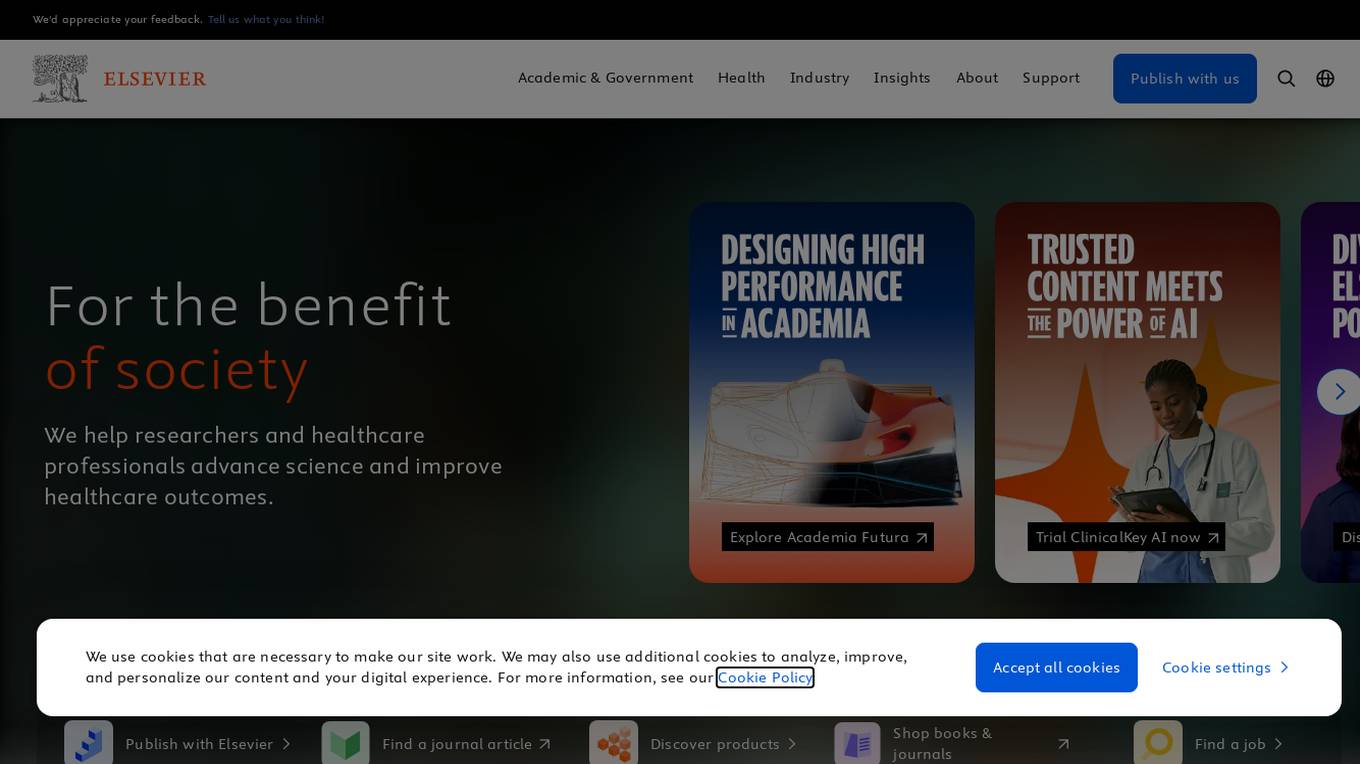
Elsevier
Elsevier is an information analytics business that supports researchers and healthcare professionals in advancing science and improving healthcare outcomes. They provide high-quality data and analytics to help researchers, librarians, and research leaders address challenges at every stage of the research journey. Elsevier offers researcher tools, research management solutions, and evaluation services to enhance productivity and research impact.

vLex
vLex is a legal AI platform that offers live case law, statutes, regulations, and legal analytics. It provides advanced engineering to deliver precise answers with transparent citations across 50 states and 17 countries. The platform includes Vincent AI, which offers over 20 AI workflows to summarize facts, contracts, build timelines, and compare jurisdictions. vLex is designed for global firms and Fortune 500 counsel, combining the largest legal database with expert legal editors tracking judicial treatment and citations.
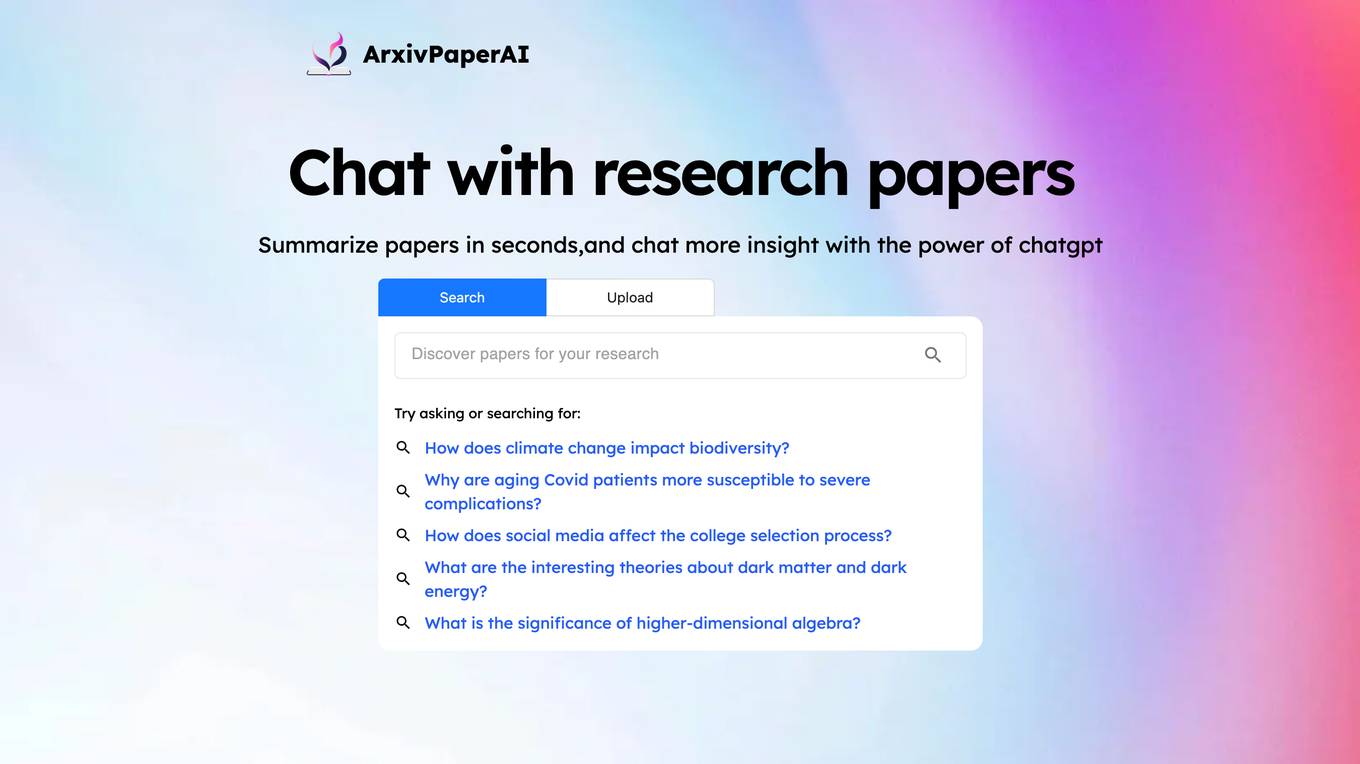
ArxivPaperAI
ArxivPaperAI is an AI-powered research paper summarizer that helps you quickly and easily understand the key points of academic papers. With ArxivPaperAI, you can:
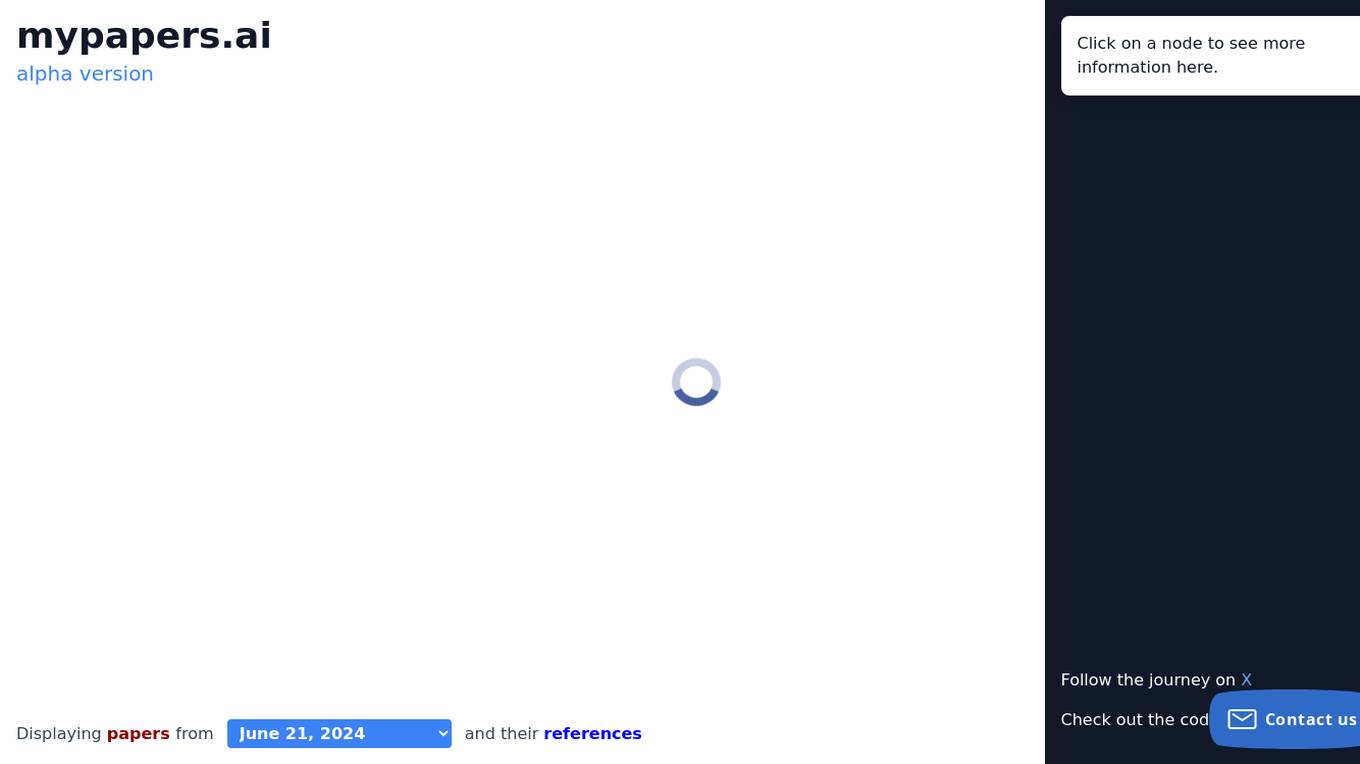
mypapers.ai
mypapers.ai is an AI tool designed to assist users in managing and analyzing academic papers efficiently. The tool offers features such as exploring papers and authors, toggling between papers and authors, and tracking the journey of research. Users can also access the code on GitHub to further enhance their research capabilities.
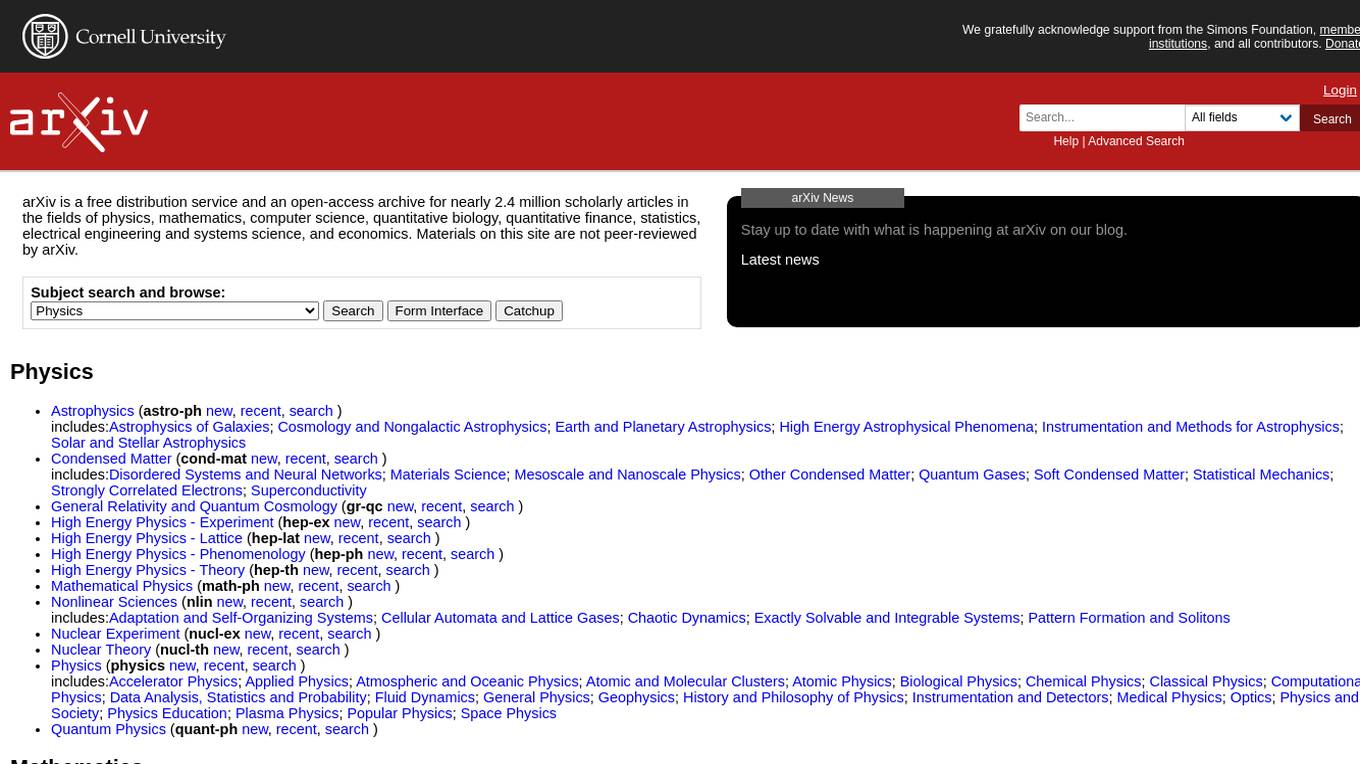
arXiv
arXiv.org is a free distribution service and an open-access archive for nearly 2.4 million scholarly articles in the fields of physics, mathematics, computer science, quantitative biology, quantitative finance, statistics, electrical engineering and systems science, and economics. Materials on this site are not peer-reviewed by arXiv.
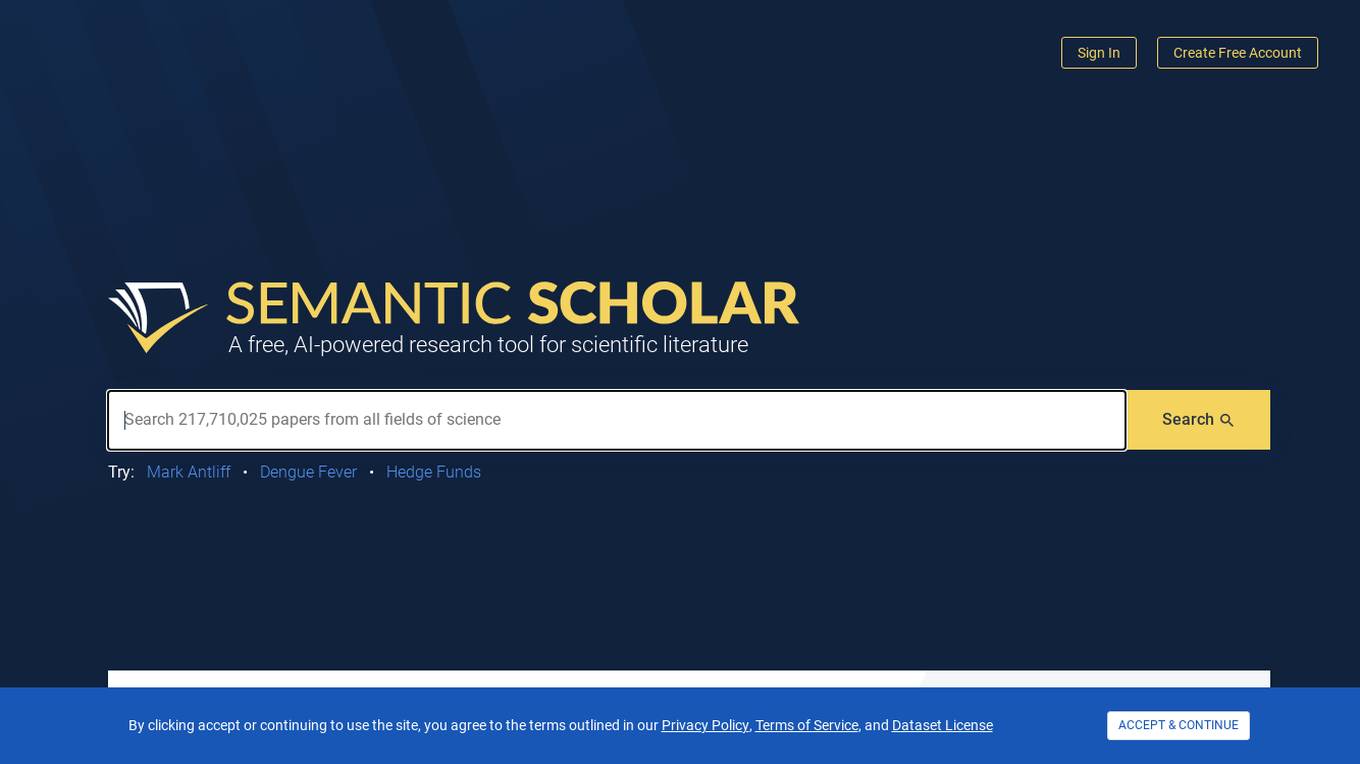
Semantic Scholar
Semantic Scholar is a free, AI-powered research tool for scientific literature. It is based at the Allen Institute for AI and provides access to over 217 million papers from all fields of science. Semantic Scholar uses AI to help users discover and explore scientific literature, and to stay up-to-date on the latest research. The tool also includes a number of features to help users manage their research, such as the ability to save papers, create bibliographies, and share research with others.

ResearchRabbit
ResearchRabbit is a research tool that helps researchers discover and organize academic papers. It uses artificial intelligence to recommend papers that are relevant to a researcher's interests and to visualize networks of papers and co-authorships. ResearchRabbit also allows researchers to collaborate on collections of papers and to share their findings with others.
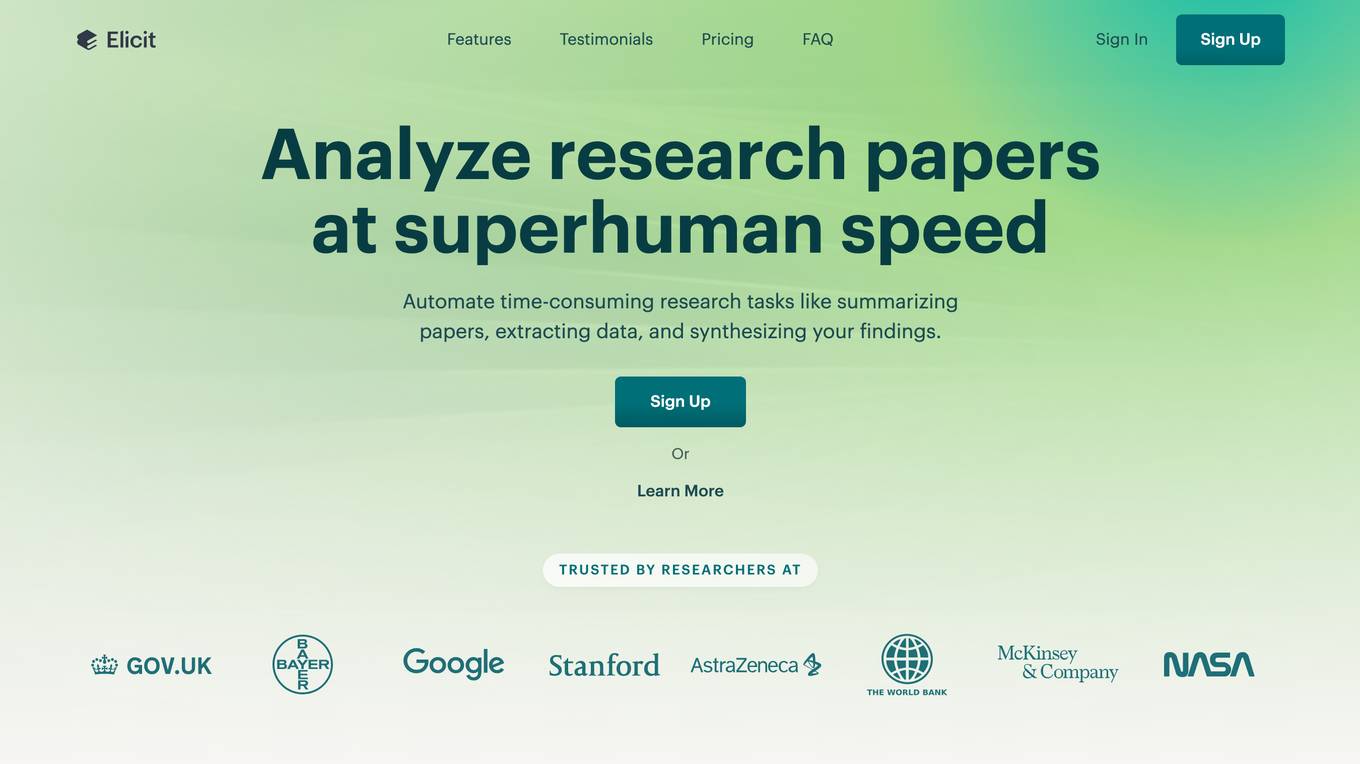
Elicit
Elicit is a research tool that uses artificial intelligence to help researchers analyze research papers more efficiently. It can summarize papers, extract data, and synthesize findings, saving researchers time and effort. Elicit is used by over 800,000 researchers worldwide and has been featured in publications such as Nature and Science. It is a powerful tool that can help researchers stay up-to-date on the latest research and make new discoveries.

OpenRead
OpenRead is an AI-powered research tool that helps users discover, understand, and organize scientific literature. It offers a variety of features to make research more efficient and effective, including semantic search, AI summarization, and note-taking tools. OpenRead is designed to help researchers of all levels, from students to experienced professionals, save time and improve their research outcomes.
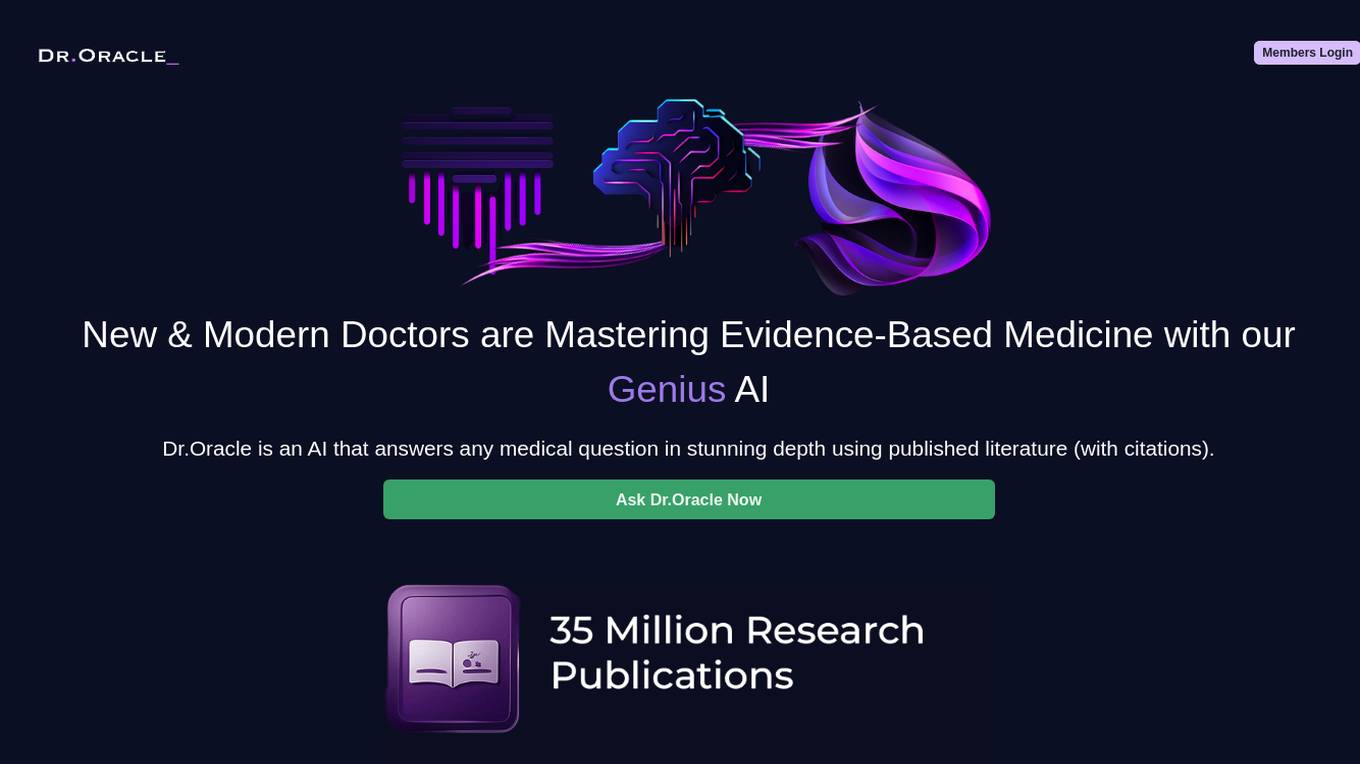
Dr.Oracle
Dr.Oracle is a personal AI research assistant that helps you find and understand the latest research in your field. With Dr.Oracle, you can search for research papers, track your favorite authors, and get personalized recommendations for new research. Dr.Oracle is the perfect tool for students, researchers, and anyone who wants to stay up-to-date on the latest research in their field.
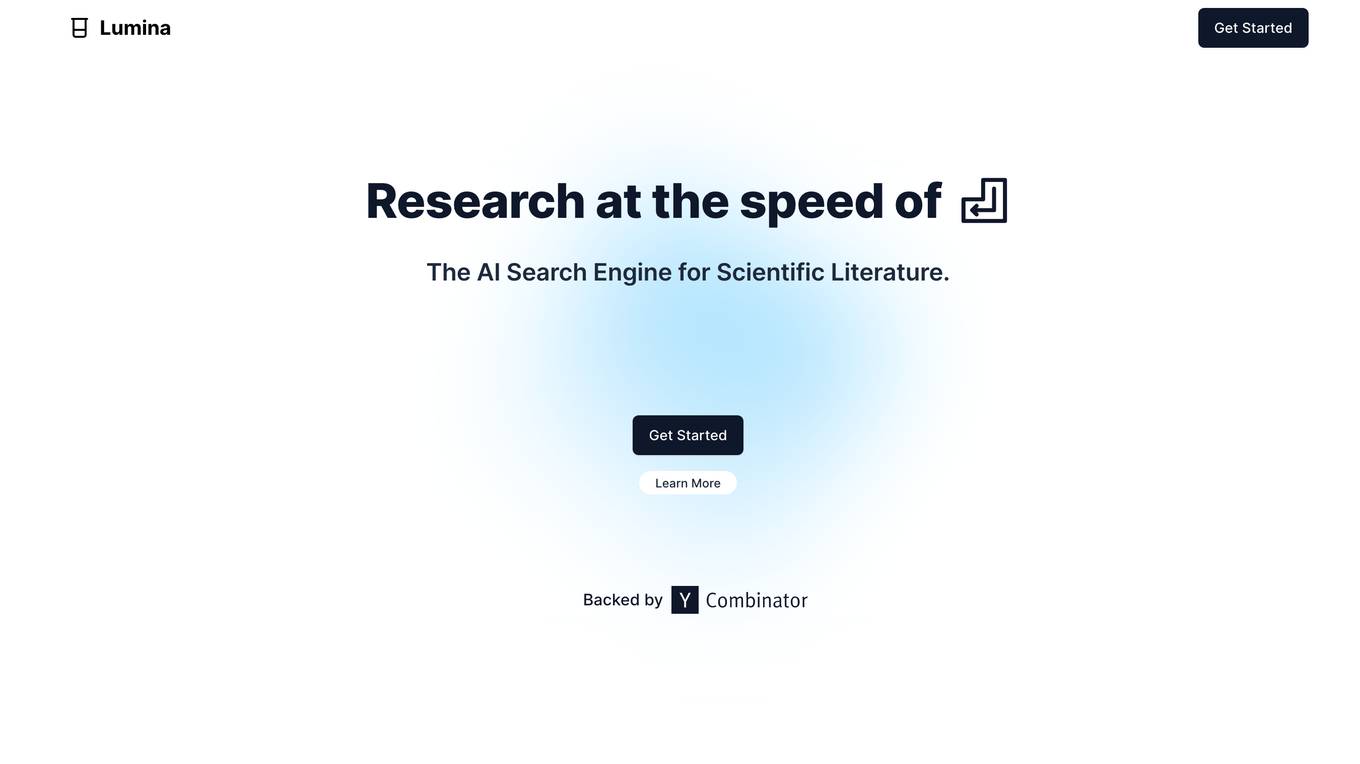
Lumina
Lumina is a research tool that uses artificial intelligence to help researchers find and analyze information more quickly and easily. It can be used to search for articles, books, and other resources, and it can also be used to analyze data and create visualizations. Lumina is designed to make research more efficient and productive.
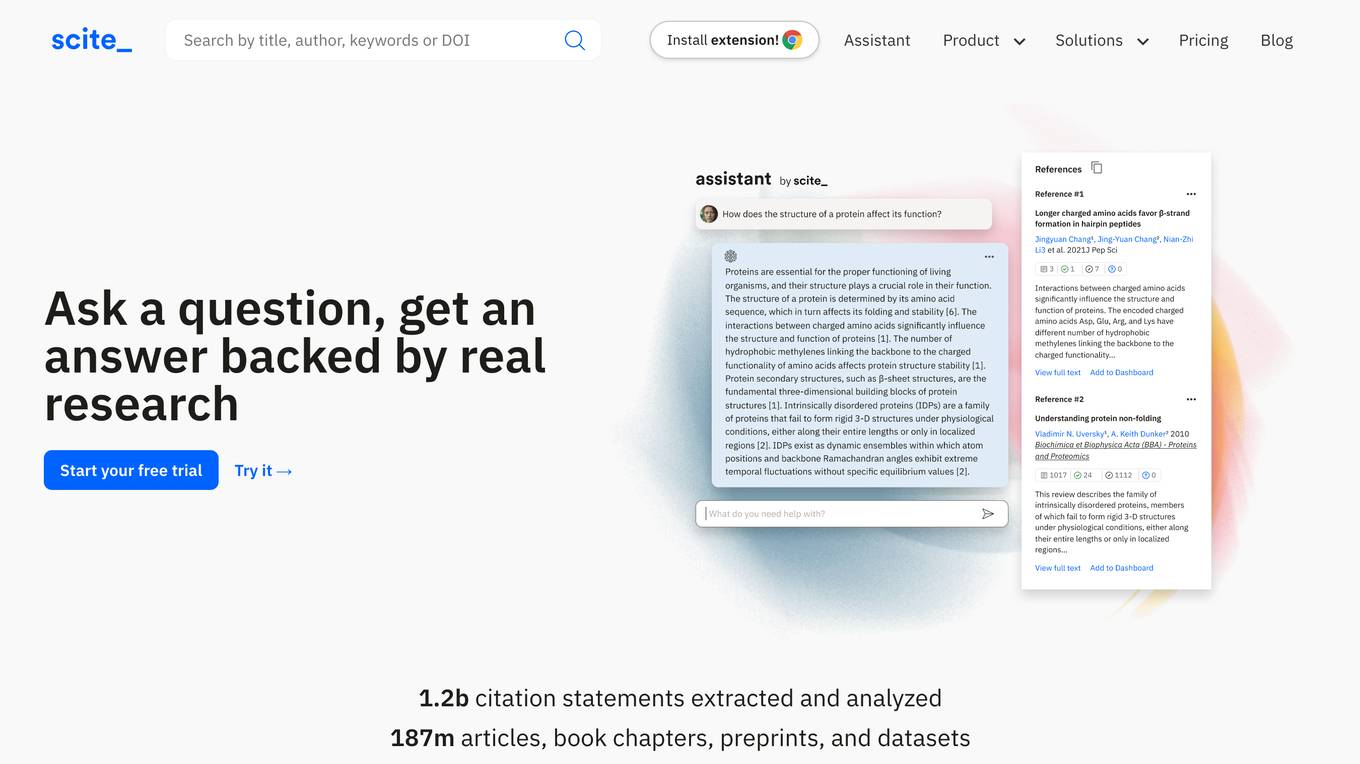
Scite
Scite is an award-winning platform for discovering and evaluating scientific articles via Smart Citations. Smart Citations allow users to see how a publication has been cited by providing the context of the citation and a classification describing whether it provides supporting or contrasting evidence for the cited claim.
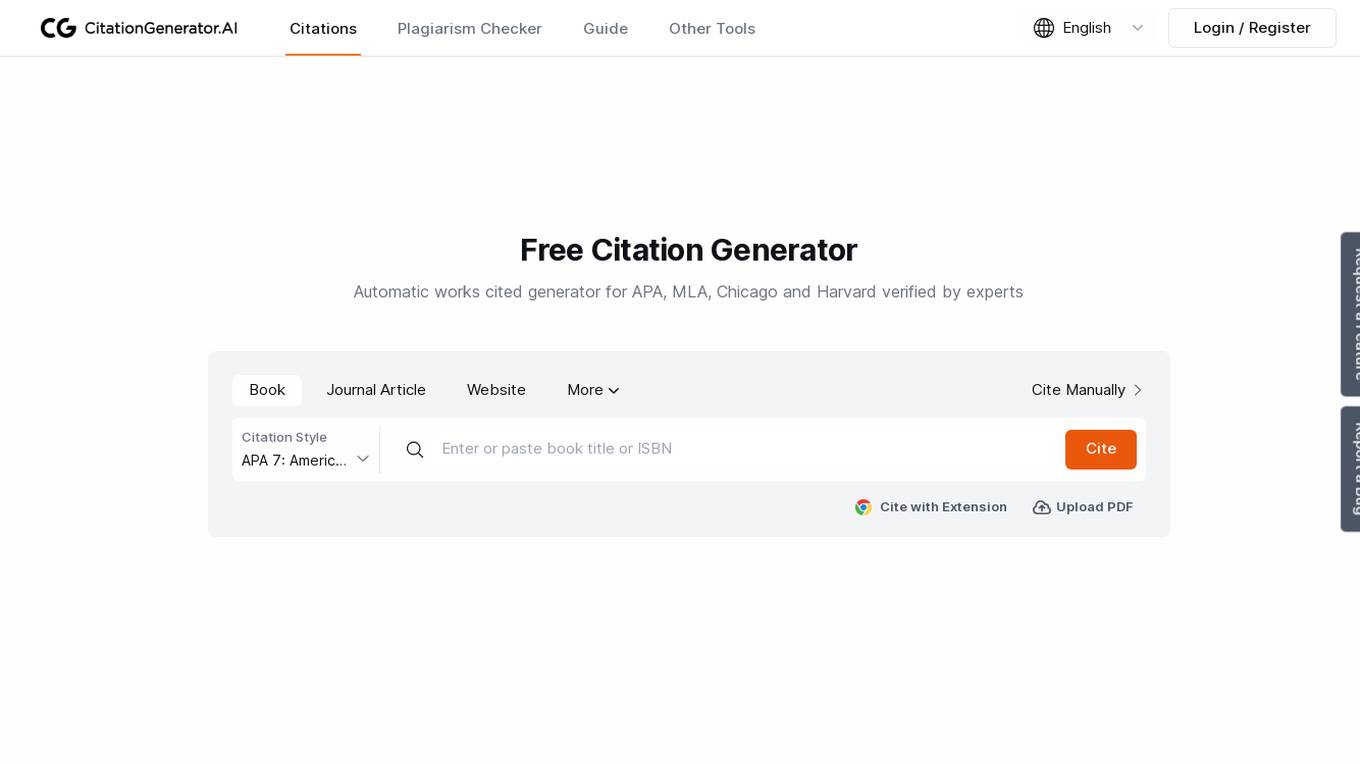
CitationGenerator.AI
CitationGenerator.AI is an AI-powered citation generator that helps users create accurate citations in APA, MLA, Chicago, and Harvard formats. The tool automatically extracts information from URLs, titles, ISBNs, or DOIs to generate precise citations. It offers a clean interface, supports multiple citation styles, and allows users to manage their research efficiently with features like import/export capabilities and custom fonts. CitationGenerator.AI prioritizes user privacy by encrypting data and offers free access without any hidden costs or ads. The tool is designed to enhance research integrity and ease by providing a user-friendly experience.
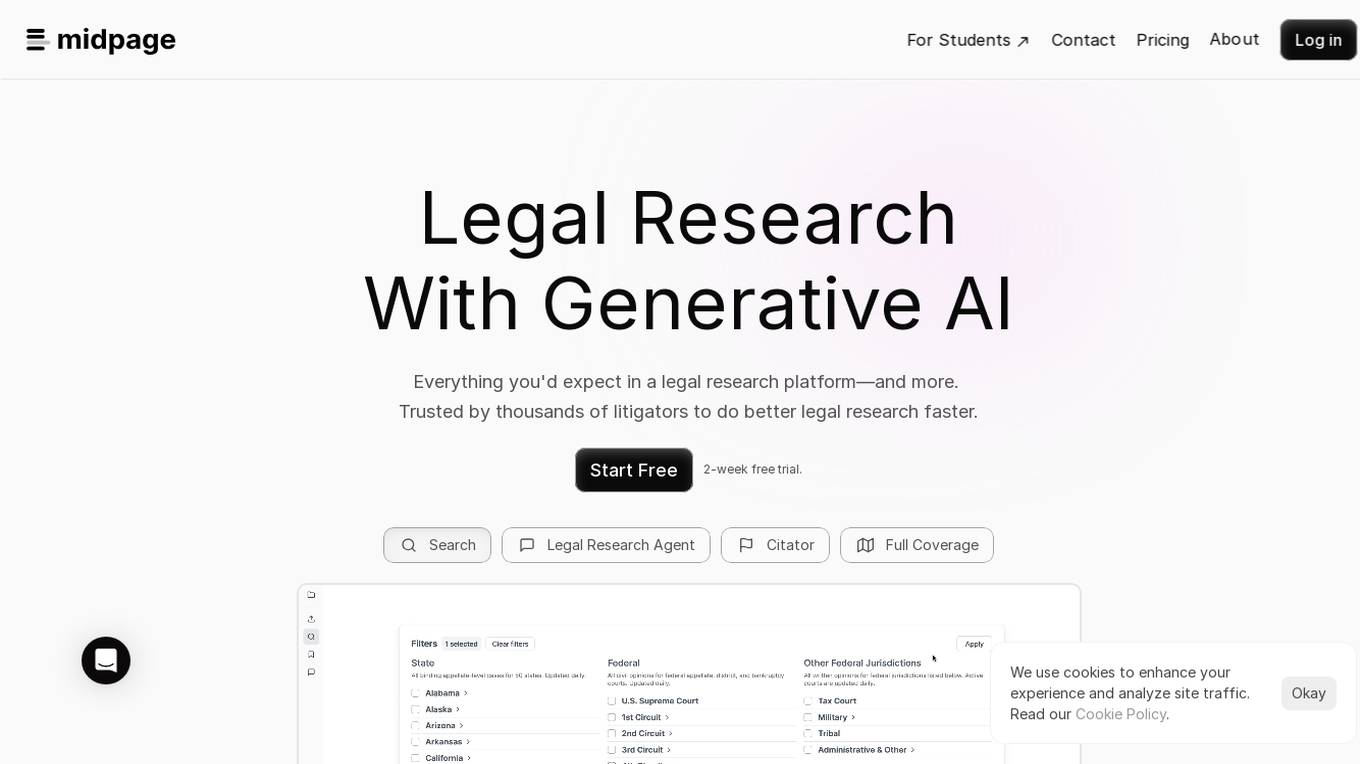
Midpage
Midpage is a legal research platform powered by Generative AI, designed to provide comprehensive legal research capabilities to students and professionals. The platform offers advanced features such as grid-based search, case filtering with AI, proactive annotations, and seamless integration of research into documents. Midpage aims to streamline the legal research process by leveraging AI technology to enhance efficiency and accuracy in analyzing legal cases and statutes.
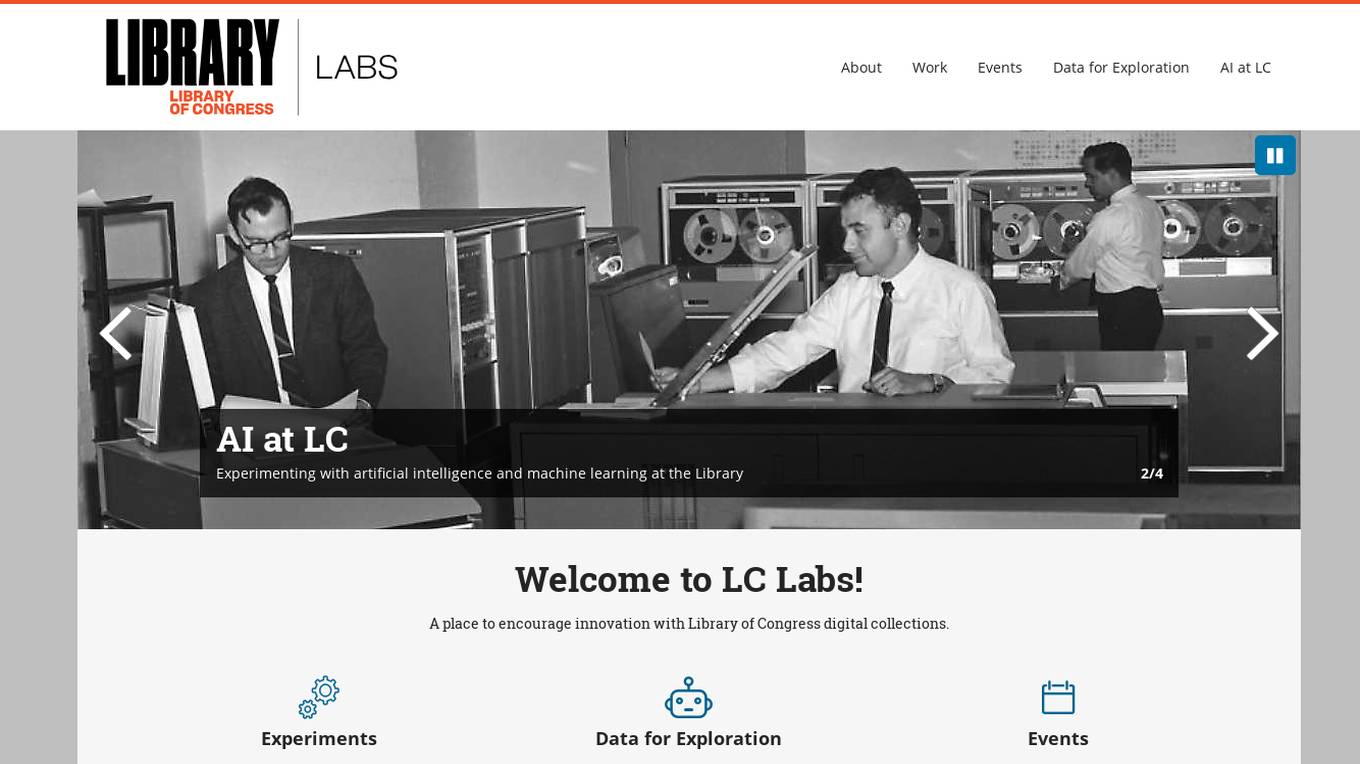
Library of Congress Labs
Library of Congress Labs is an AI tool that focuses on experimenting with artificial intelligence and machine learning at the Library of Congress. It encourages innovation with digital collections, research, and events. The platform aims to explore cultural heritage, connect communities, and center the histories and experiences of communities of color.
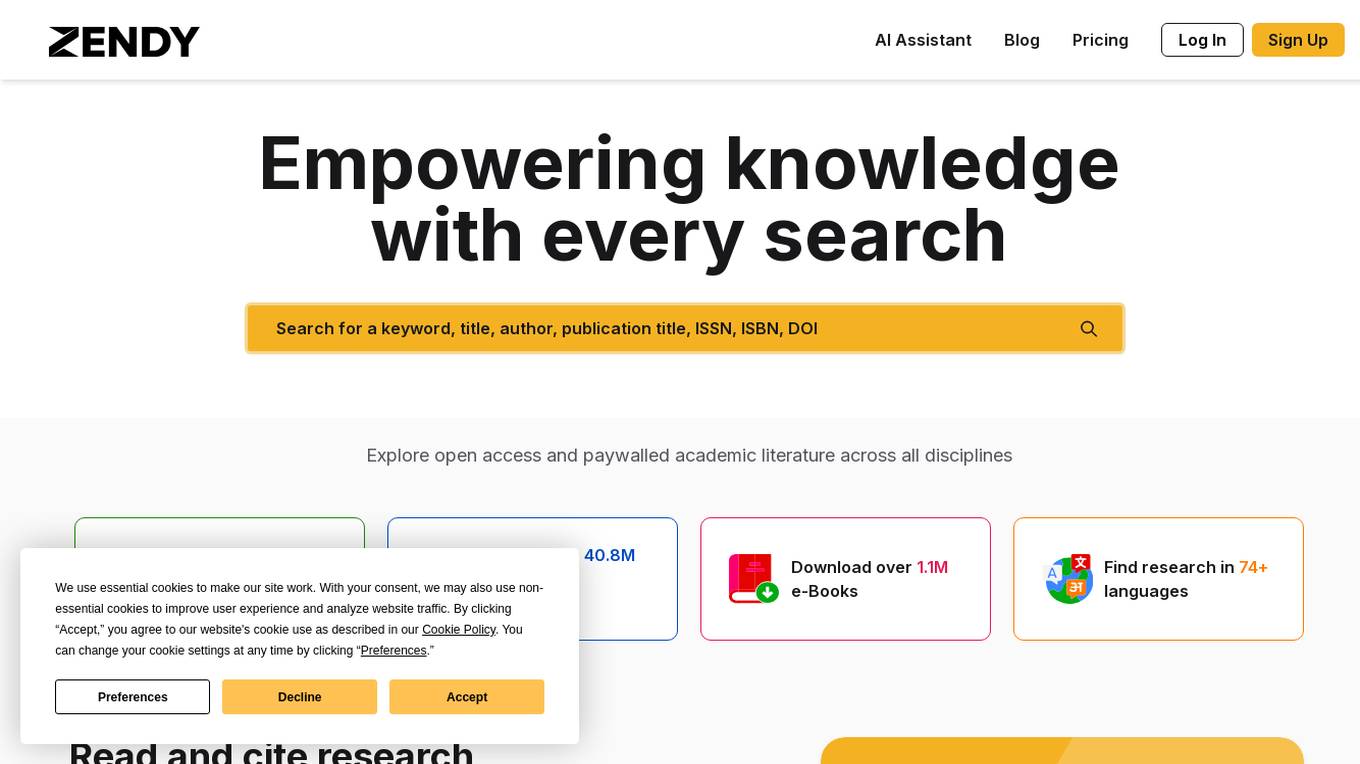
Zendy
Zendy is an AI-powered research library and AI assistant that empowers users to explore open access and paywalled academic literature across all disciplines. It offers tools for faster reading and citing of research papers, including AI summarization, key phrase highlighting, and organizing reading lists. With a user-friendly interface, Zendy helps users save time during literature review, making research more efficient and productive.
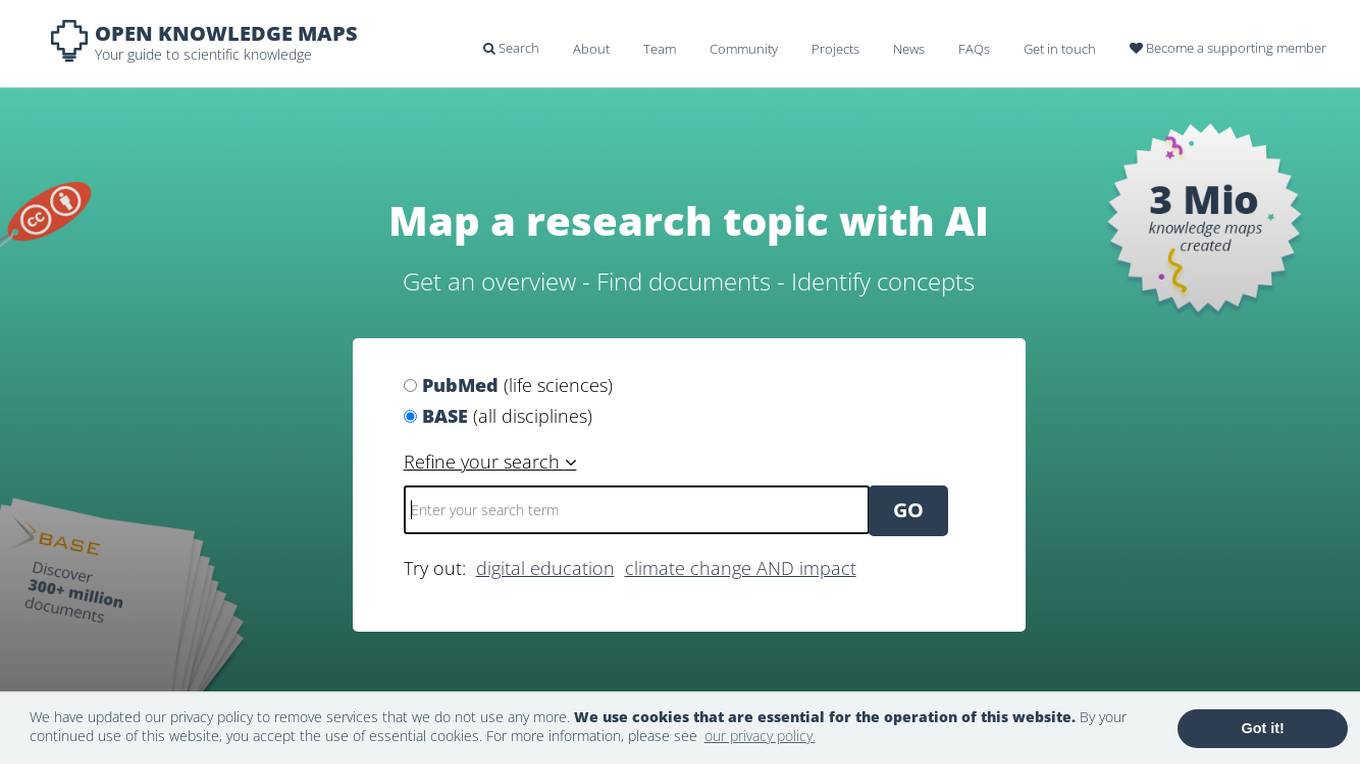
Open Knowledge Maps
Open Knowledge Maps is the world's largest AI-based search engine for scientific knowledge. It aims to revolutionize discovery by increasing the visibility of research findings for science and society. The platform is open and nonprofit, based on the principles of open science, with a mission to create an inclusive, sustainable, and equitable infrastructure for all users. Users can map research topics with AI, find documents, and identify concepts to enhance their literature search experience.
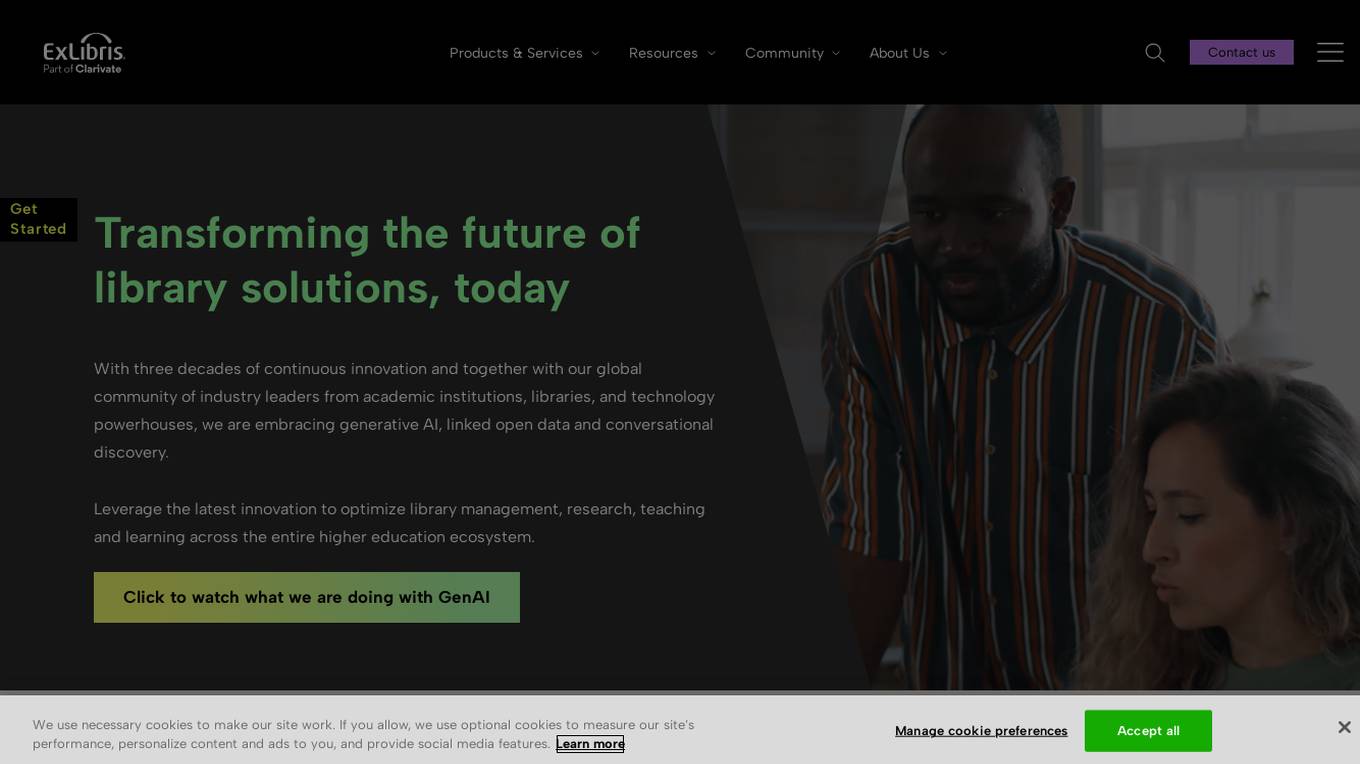
Ex Libris Products & Services
The website is a comprehensive platform offering a suite of software solutions for library management, research, teaching, and learning in the higher education ecosystem. It leverages generative AI, linked open data, and conversational discovery to optimize operations, integration, personalized experiences, and analytic insights. The platform includes various products and services such as Alma, Primo, Leganto, Rapido, Rosetta, and campusM, catering to the unique needs of academic institutions, libraries, and technology powerhouses. The website features success stories, customer testimonials, webinars, learning resources, and community engagement initiatives.
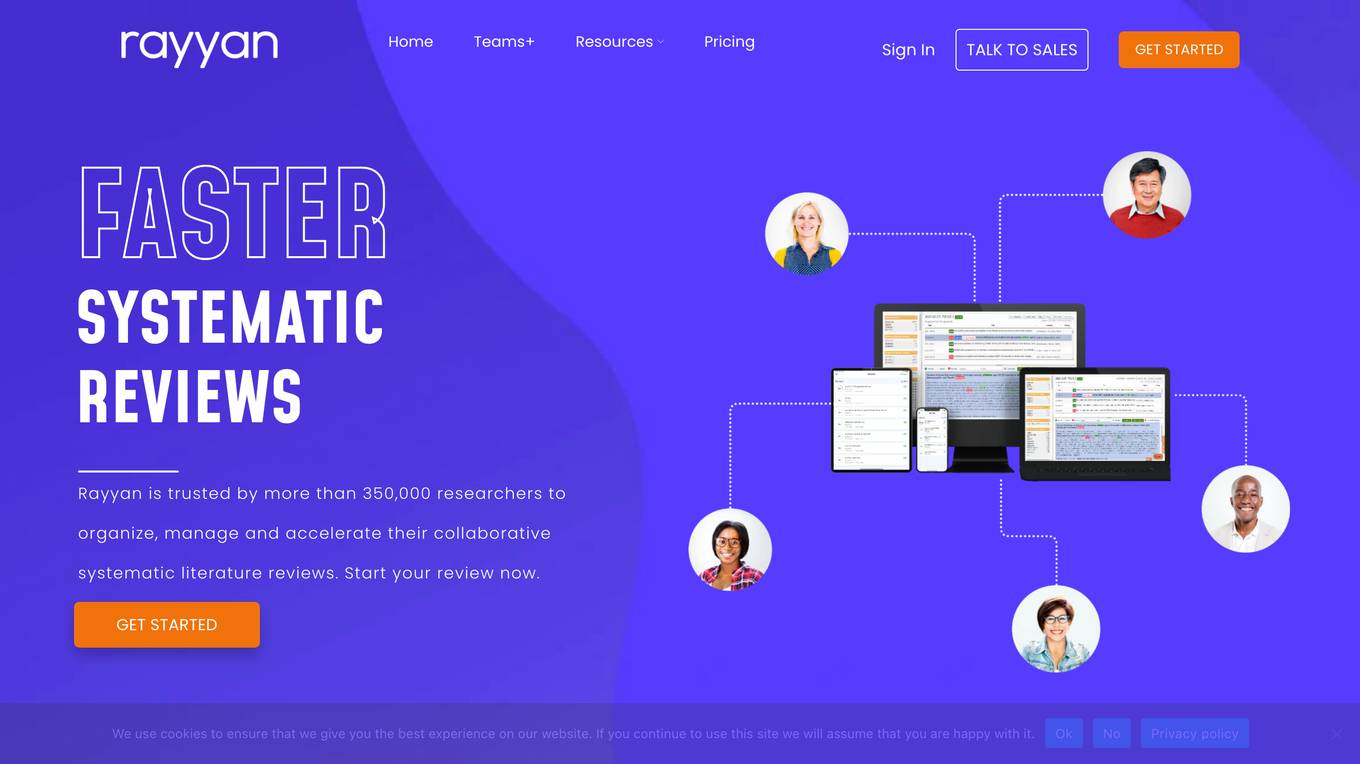
Rayyan
Rayyan is an intelligent systematic review tool trusted by over 500,000 researchers worldwide. It helps users organize, manage, and accelerate collaborative systematic literature reviews. Rayyan empowers users to work remotely and collaborate with distributed research teams, offering membership packages with onboarding, training, and priority support. The tool is designed to understand language, learn from user decisions, and facilitate quick navigation through systematic reviews. Rayyan also provides solutions for organizations and businesses to streamline research processes and save valuable researcher time.
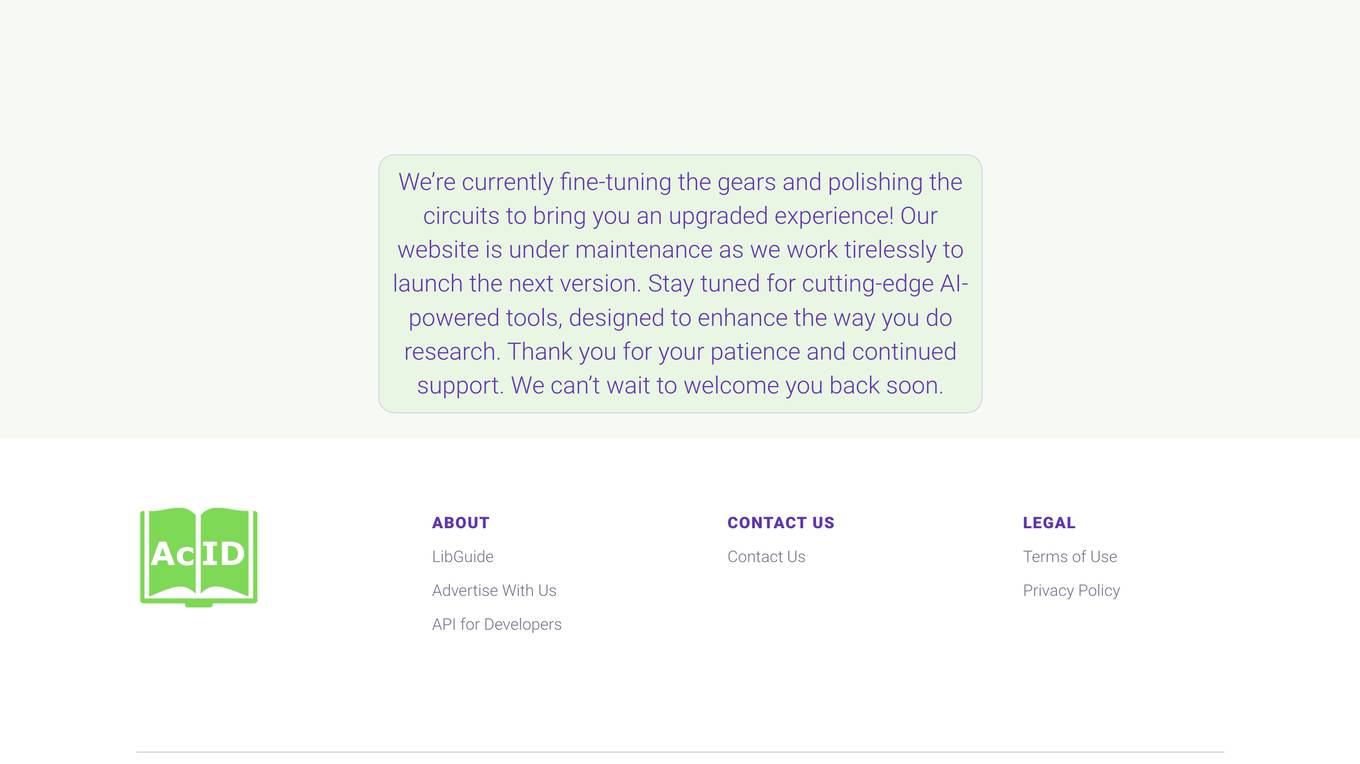
AcademicID
AcademicID is an AI-powered platform that helps students and researchers discover and access academic resources. It provides a comprehensive database of academic papers, journals, and other resources, as well as tools to help users organize and manage their research. AcademicID also offers a variety of features to help users collaborate with others and share their research findings.
0 - Open Source Tools
20 - OpenAI Gpts
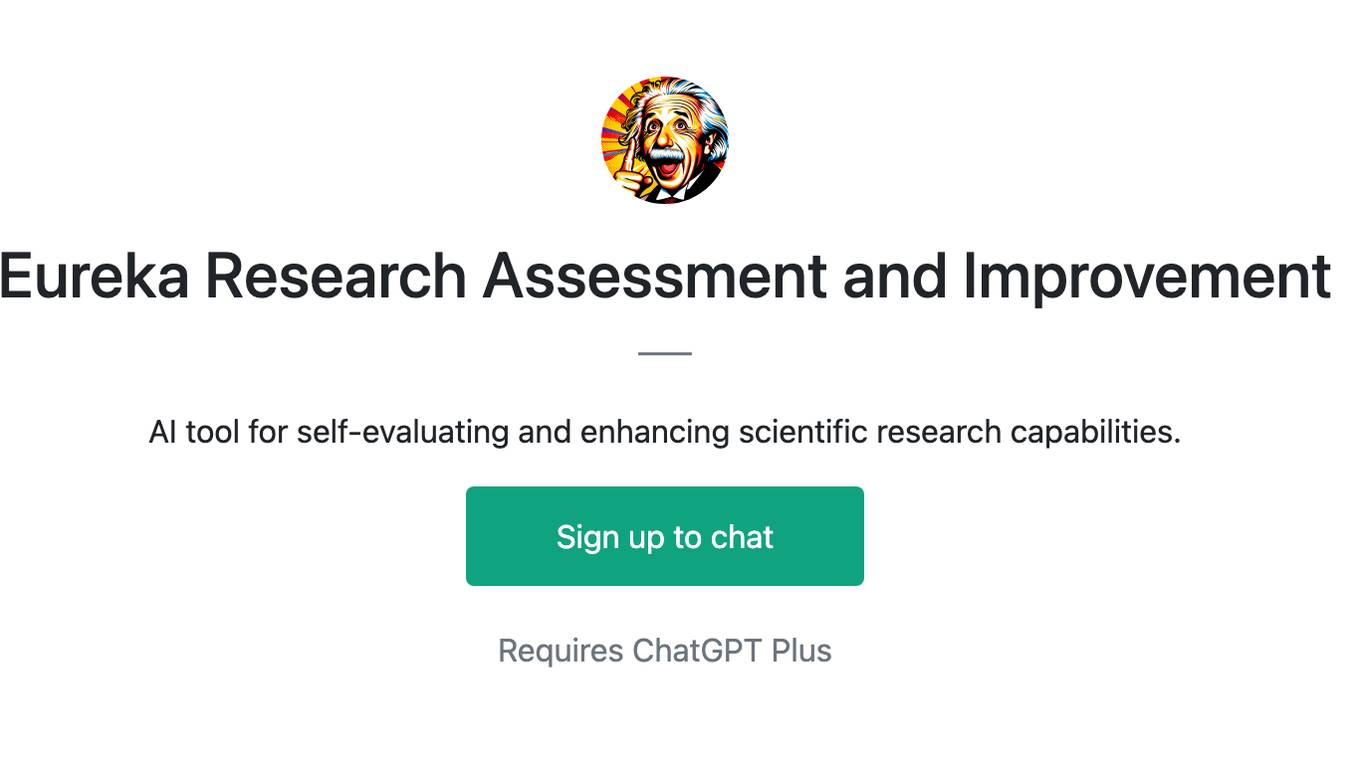
Eureka Research Assessment and Improvement
AI tool for self-evaluating and enhancing scientific research capabilities.
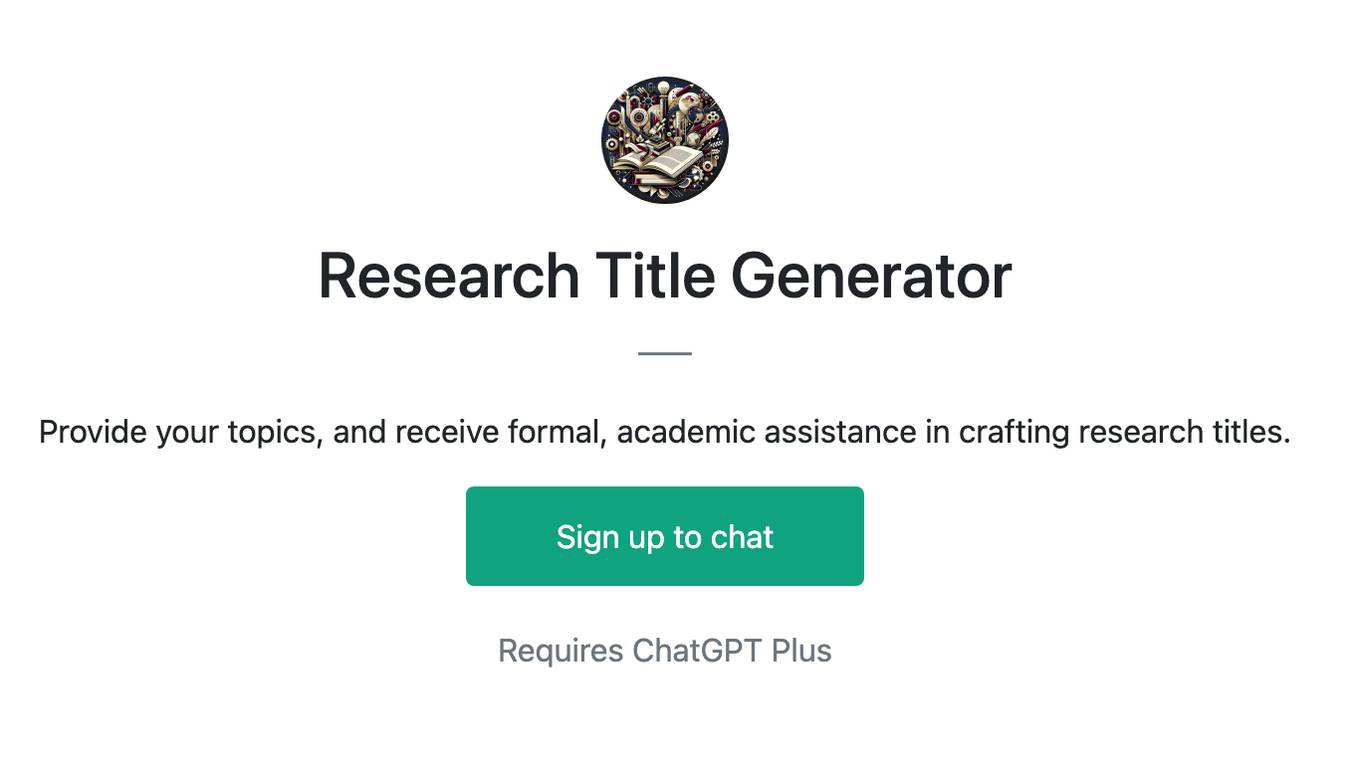
Research Title Generator
Provide your topics, and receive formal, academic assistance in crafting research titles.
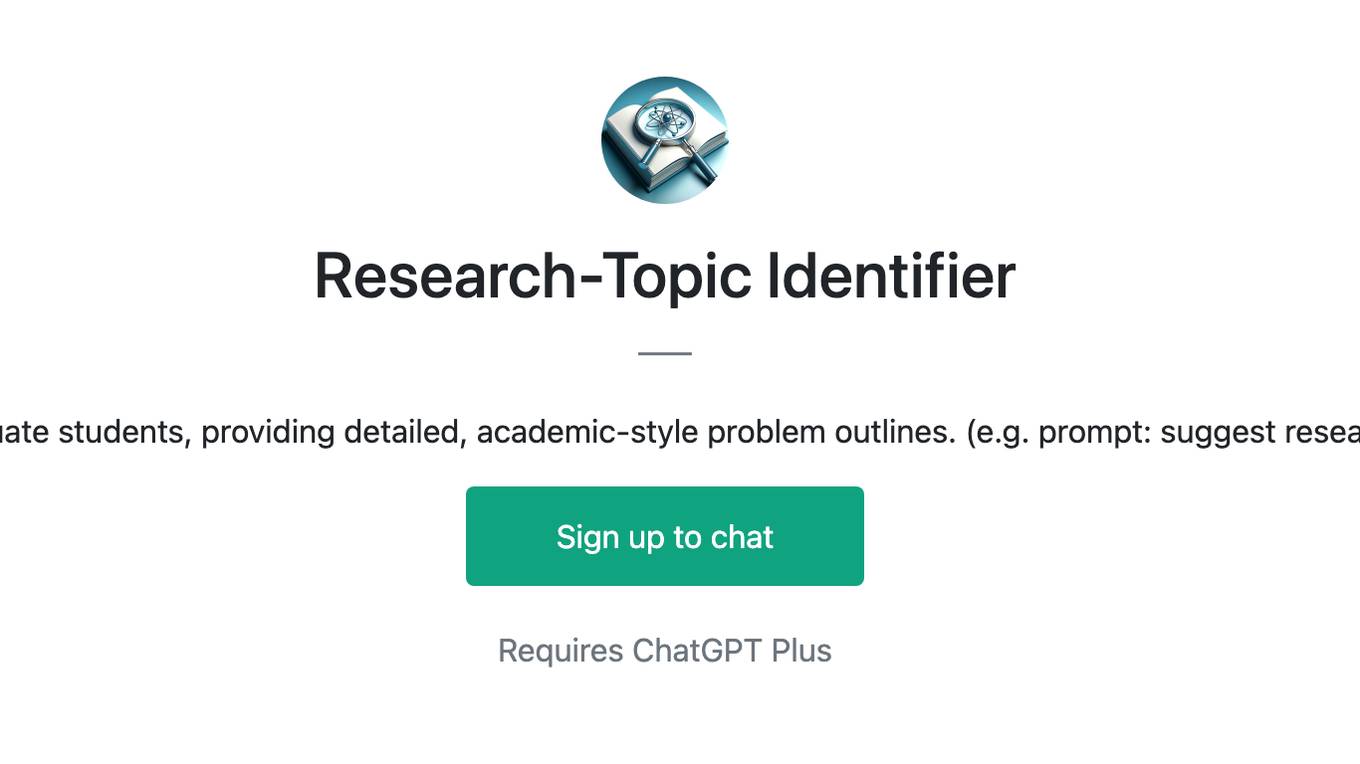
Research-Topic Identifier
Research topic identifier for graduate students, providing detailed, academic-style problem outlines. (e.g. prompt: suggest research topics in renewable energy)
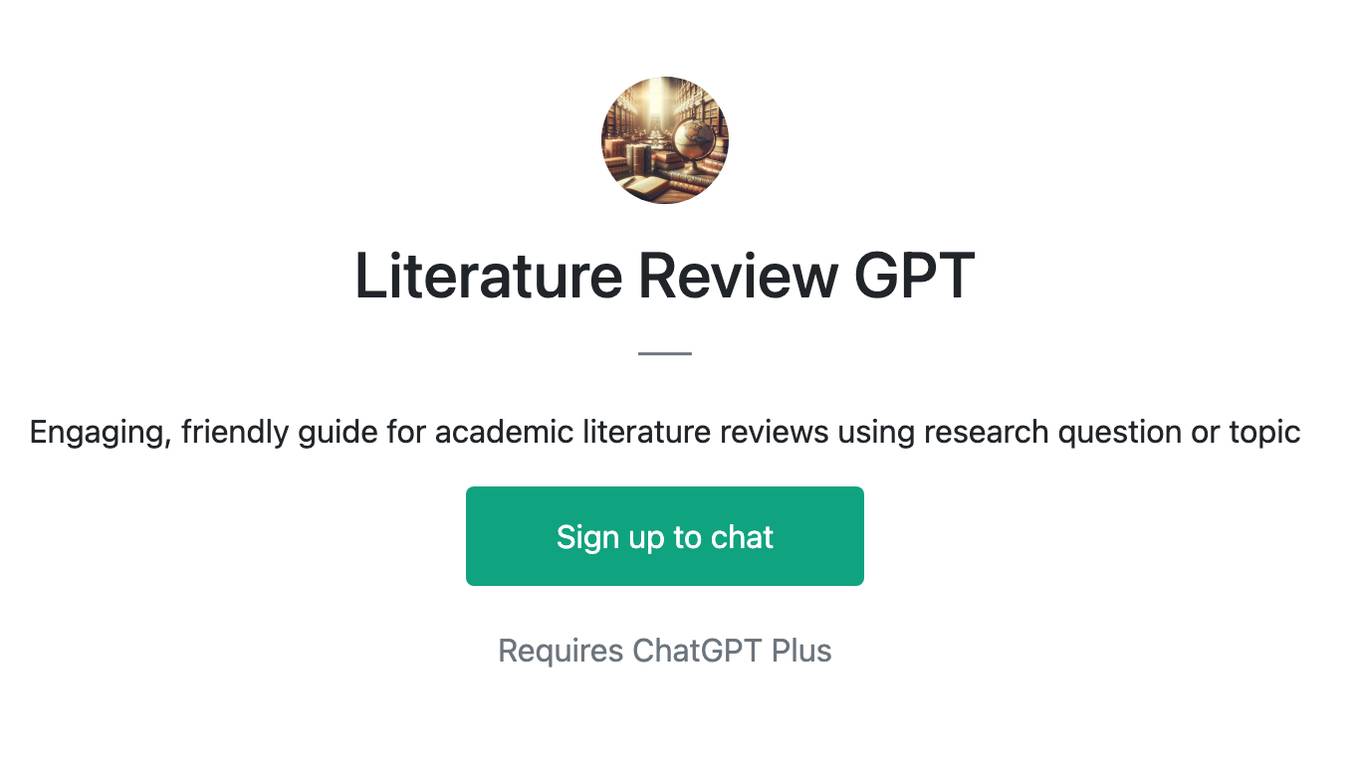
Literature Review GPT
Engaging, friendly guide for academic literature reviews using research question or topic
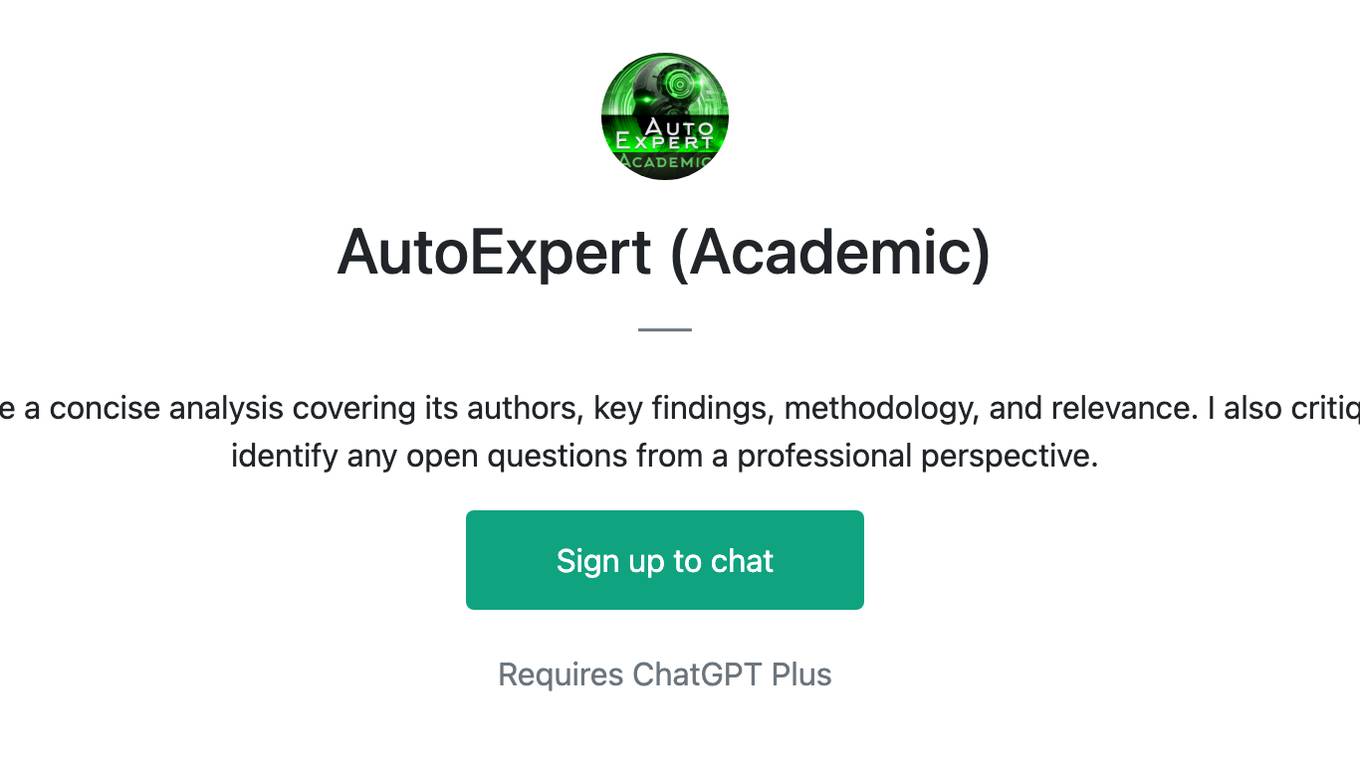
AutoExpert (Academic)
Upon uploading a research paper, I provide a concise analysis covering its authors, key findings, methodology, and relevance. I also critique the work, highlight its strengths, and identify any open questions from a professional perspective.
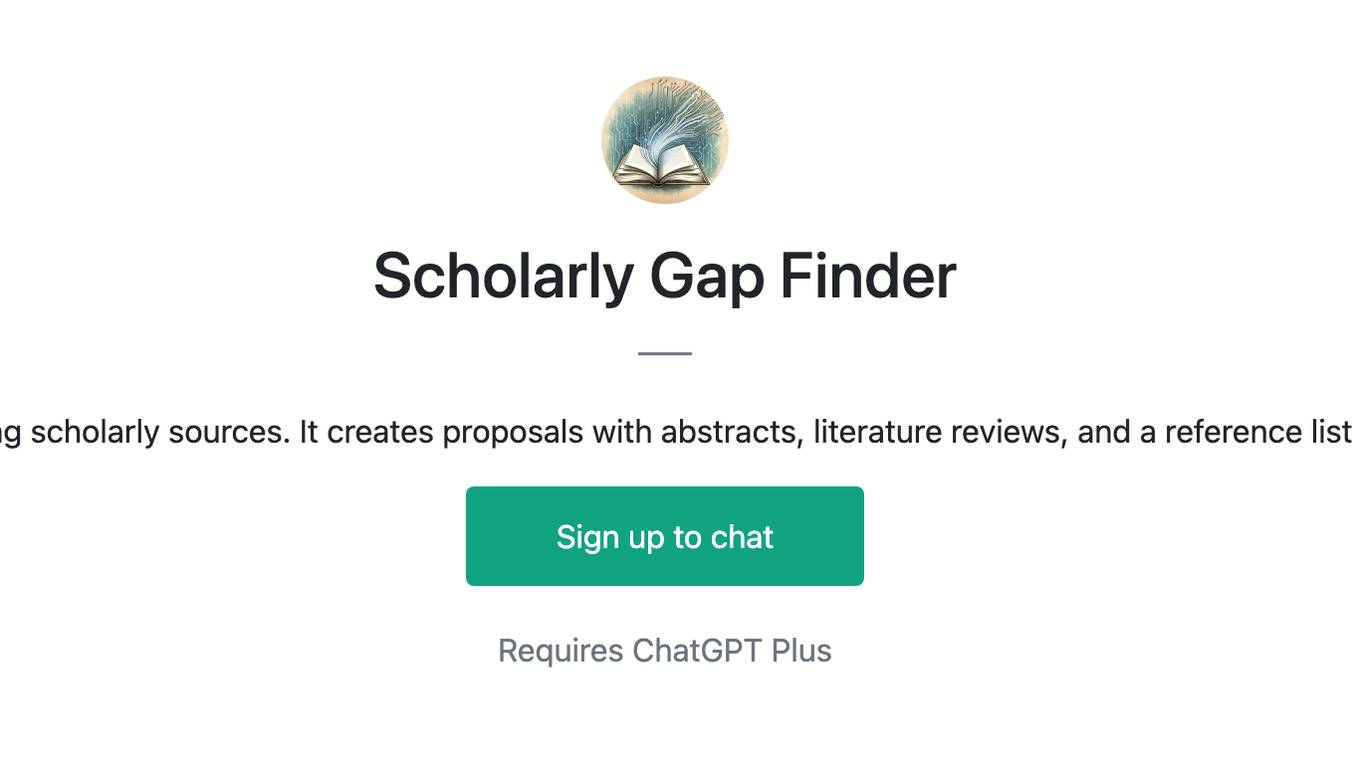
Scholarly Gap Finder
SGF identifies research gaps using scholarly sources. It creates proposals with abstracts, literature reviews, and a reference list tailored for academic research.
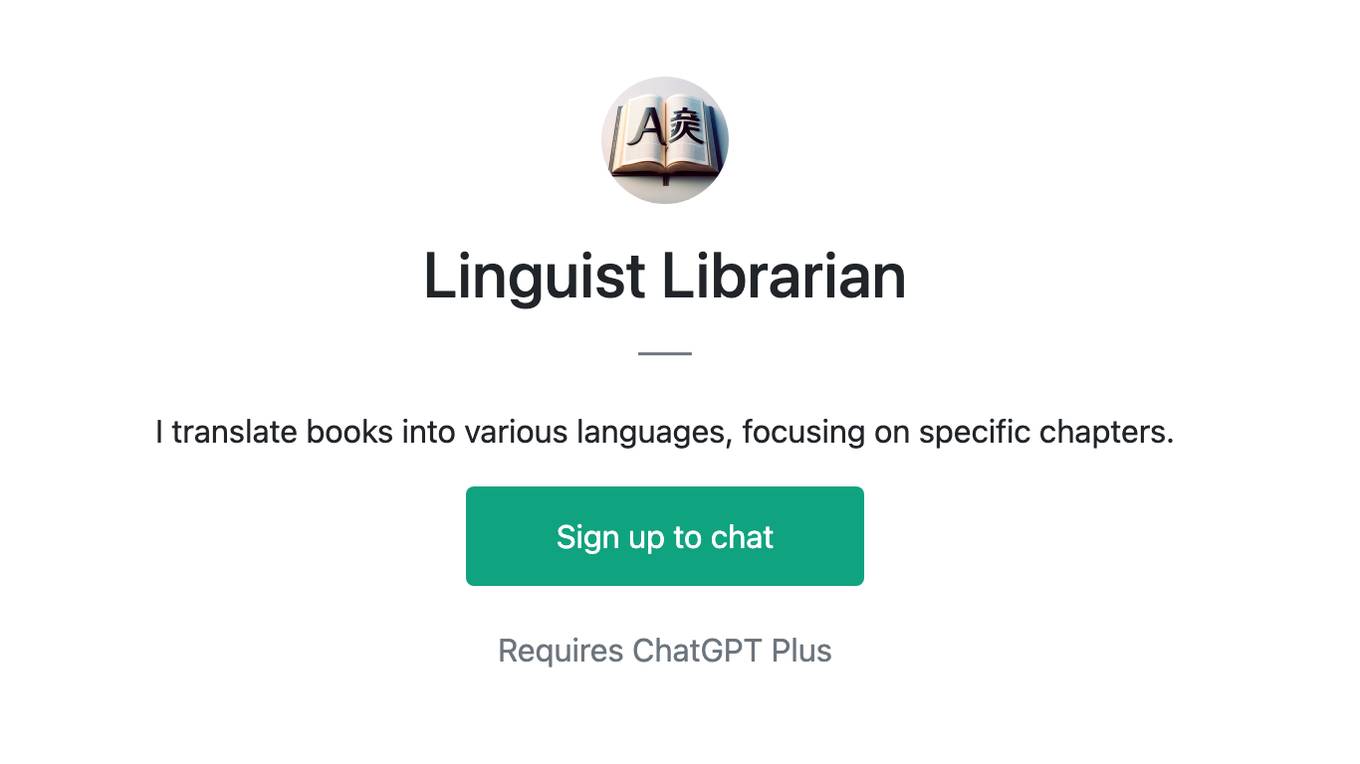
Linguist Librarian
I translate books into various languages, focusing on specific chapters.
